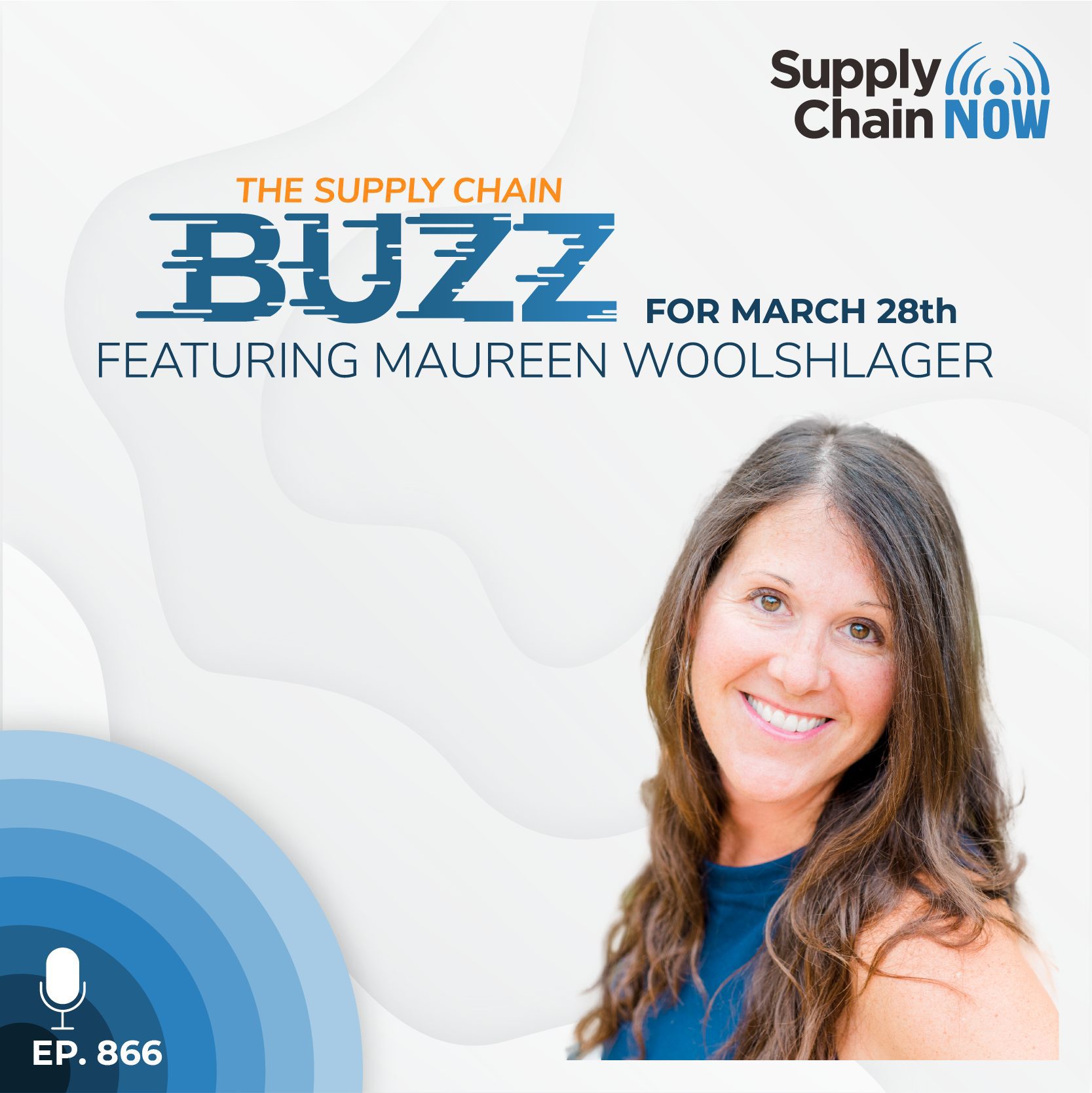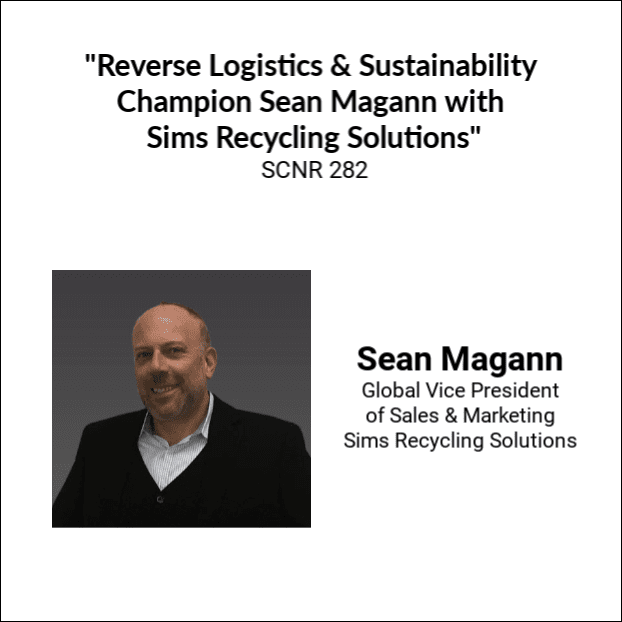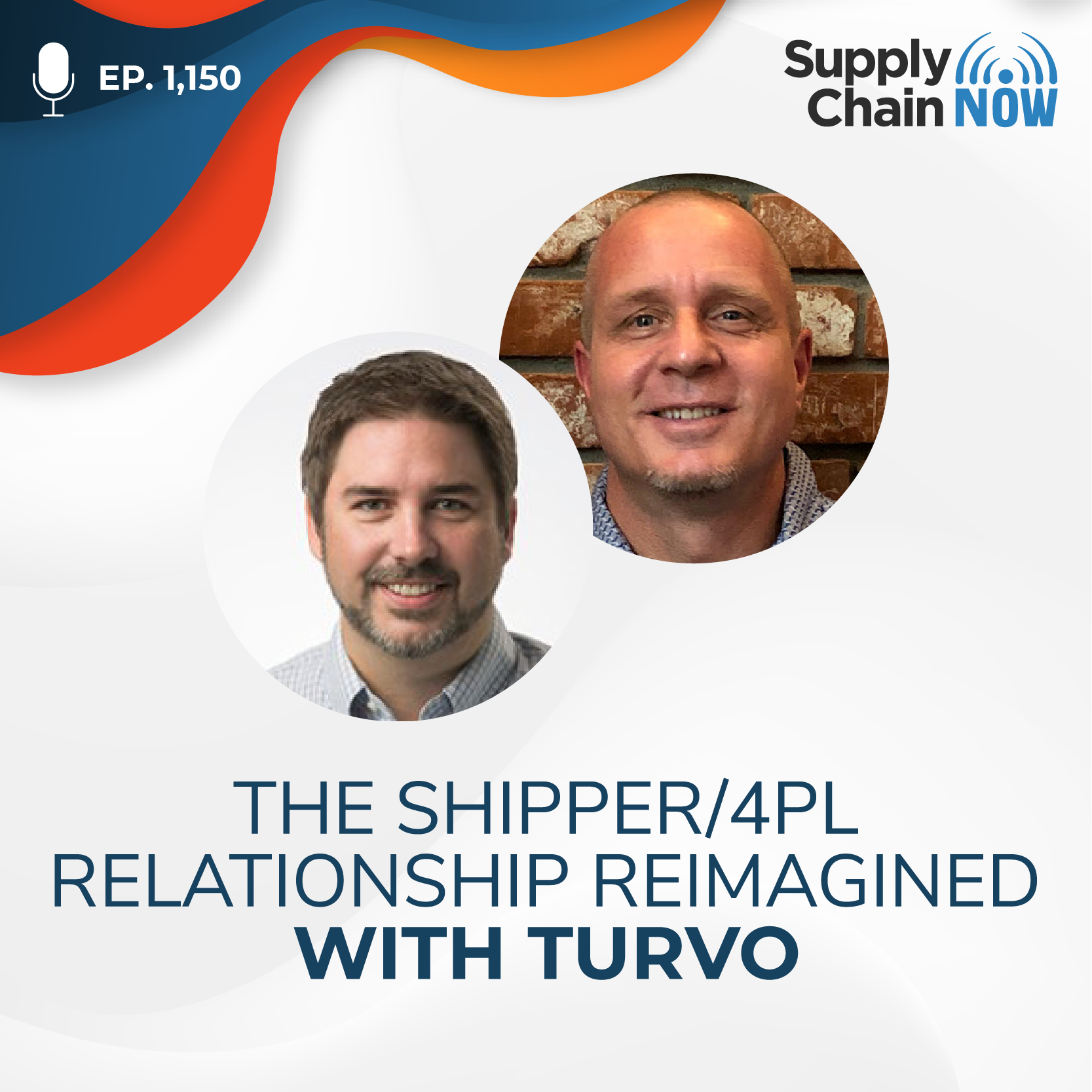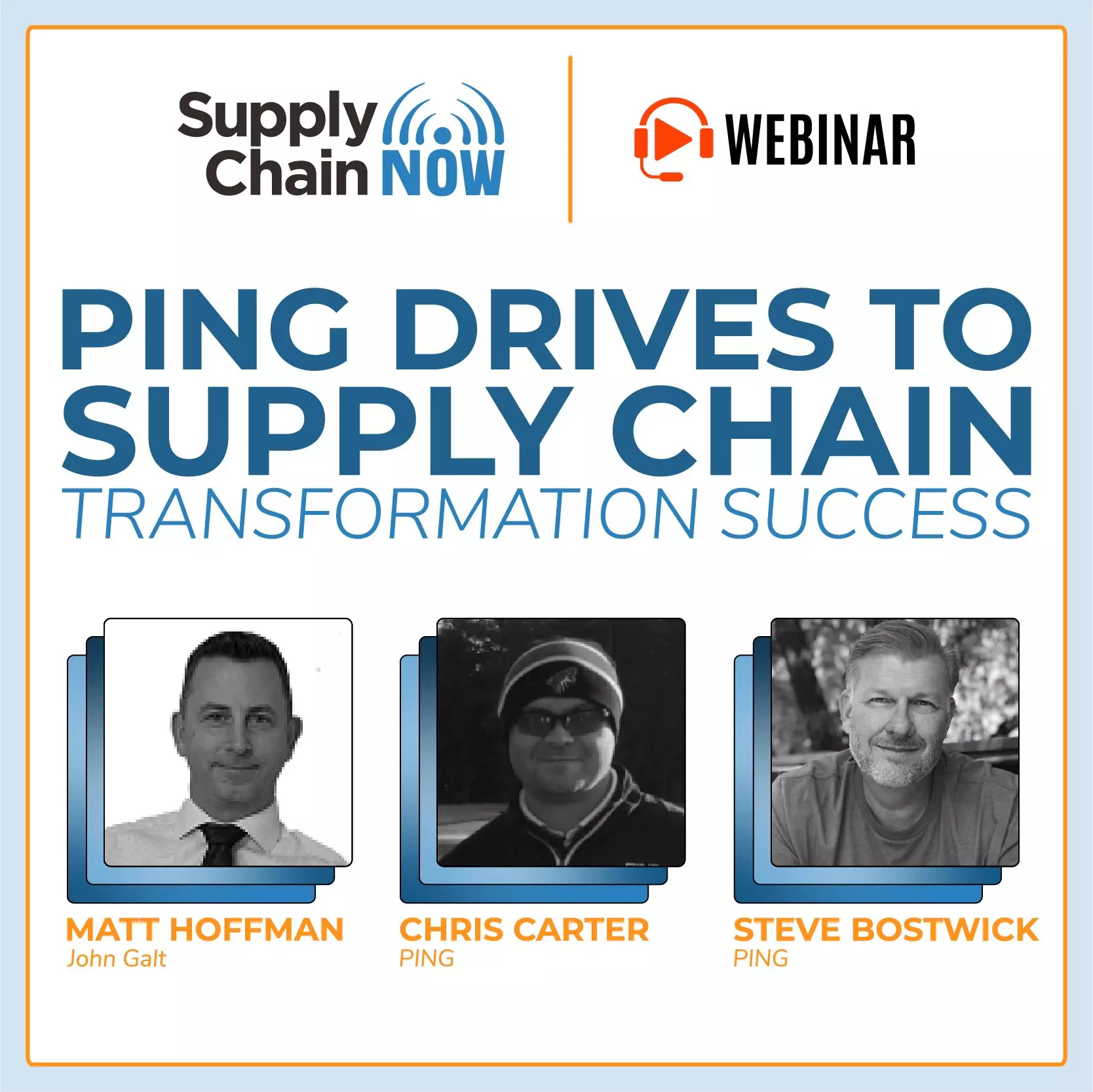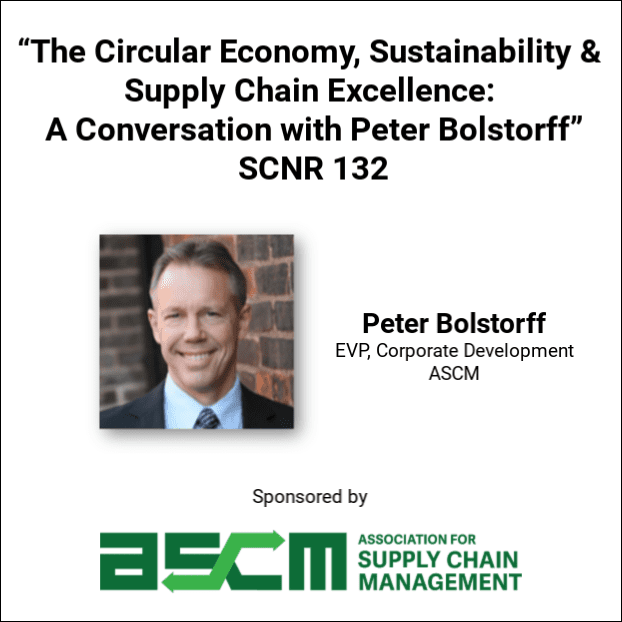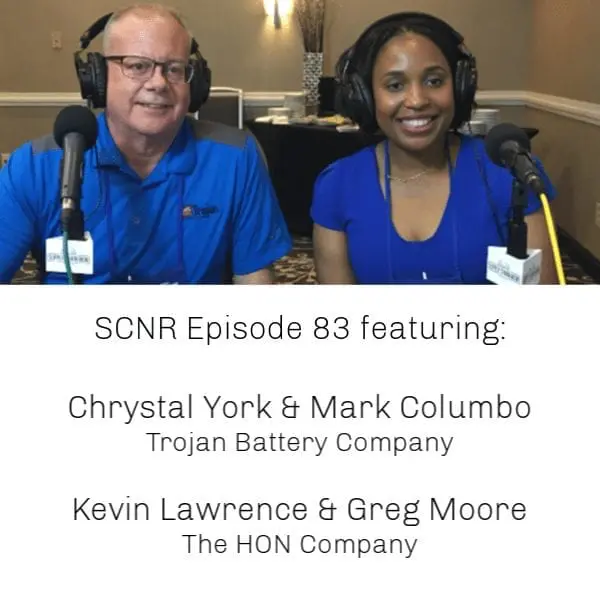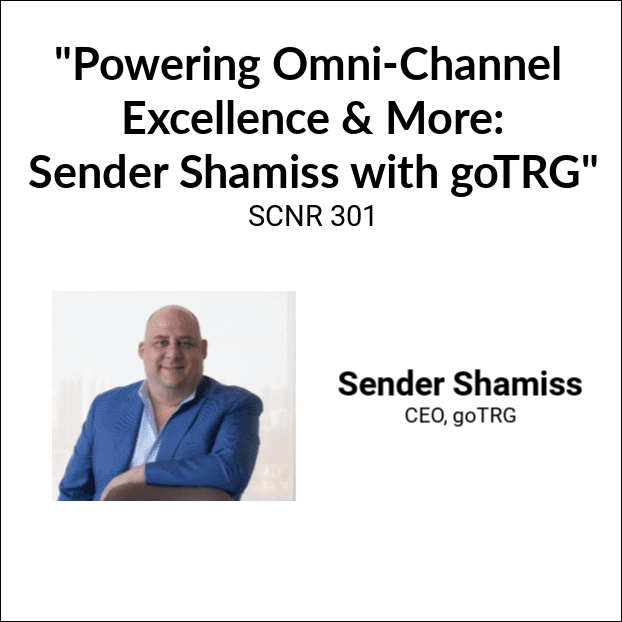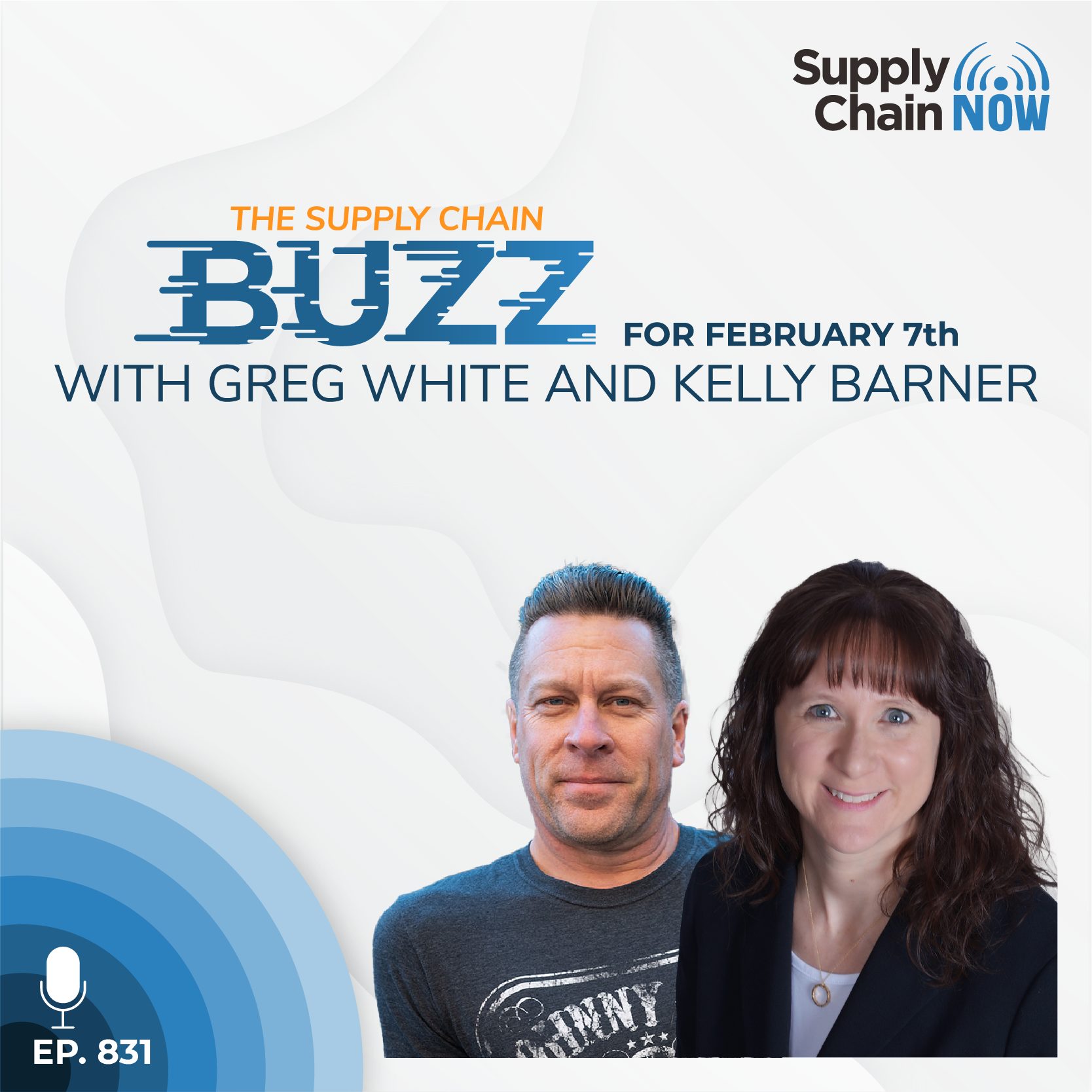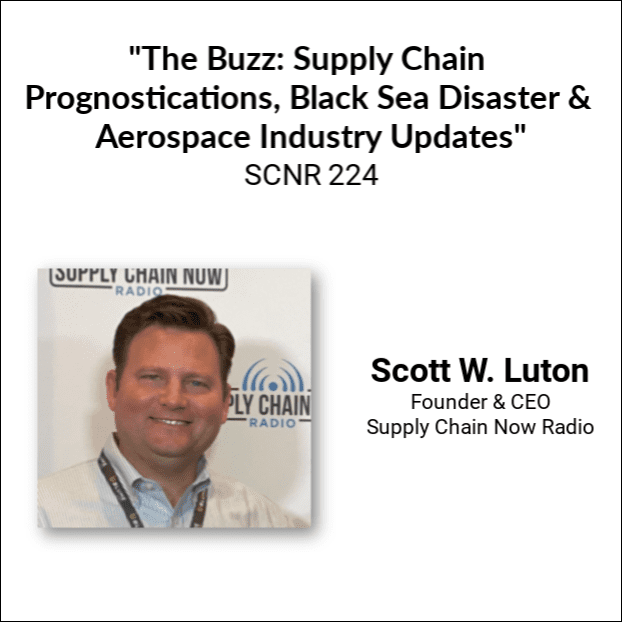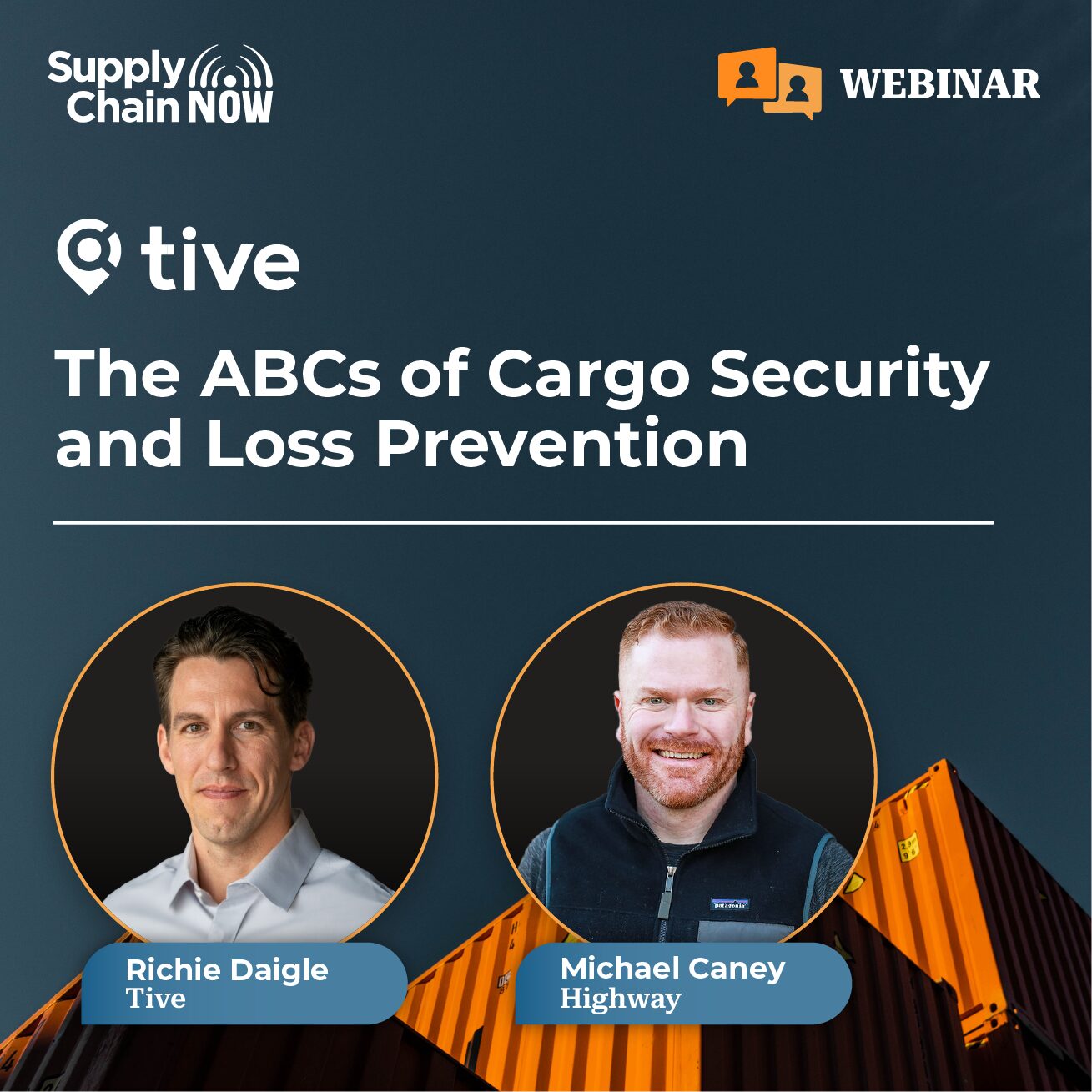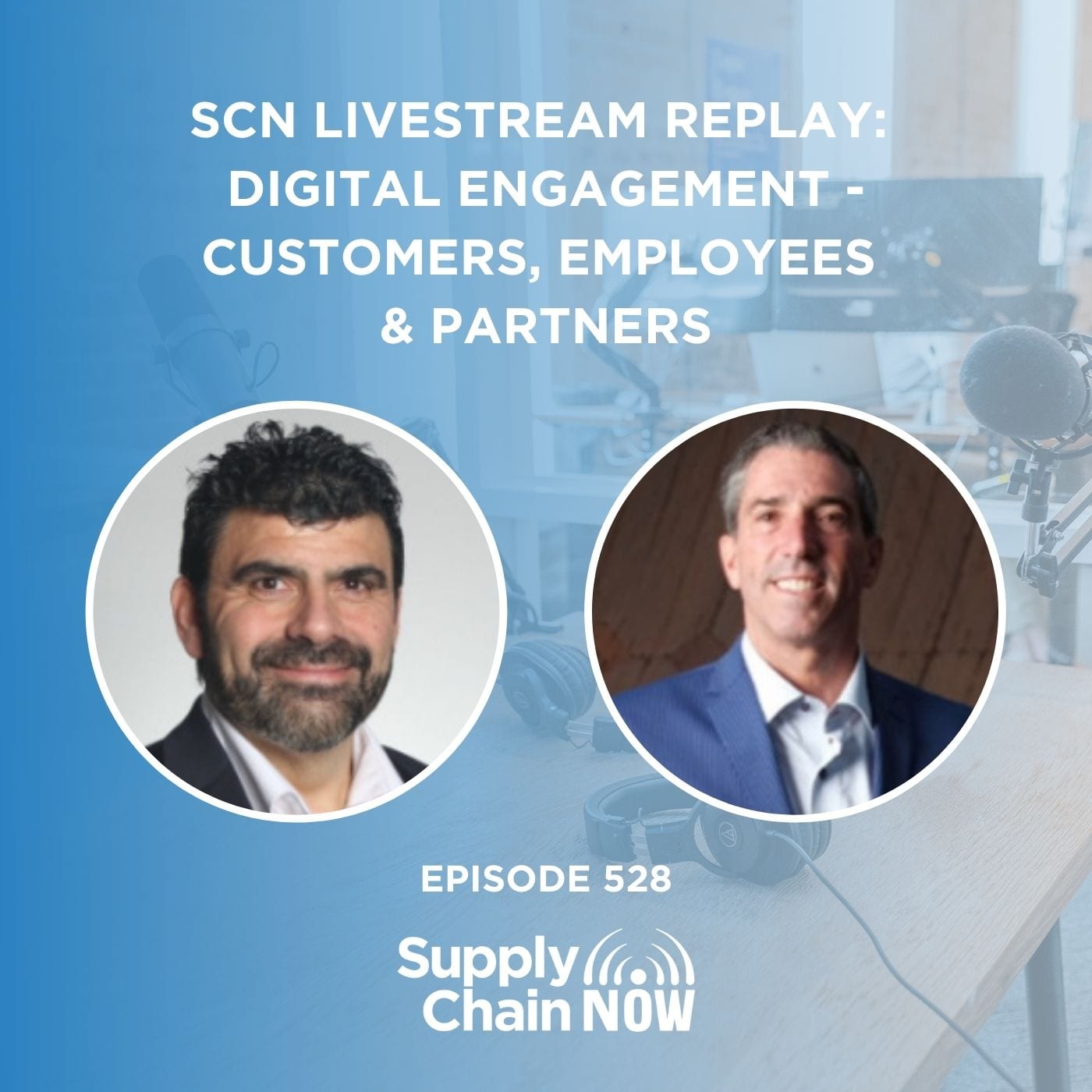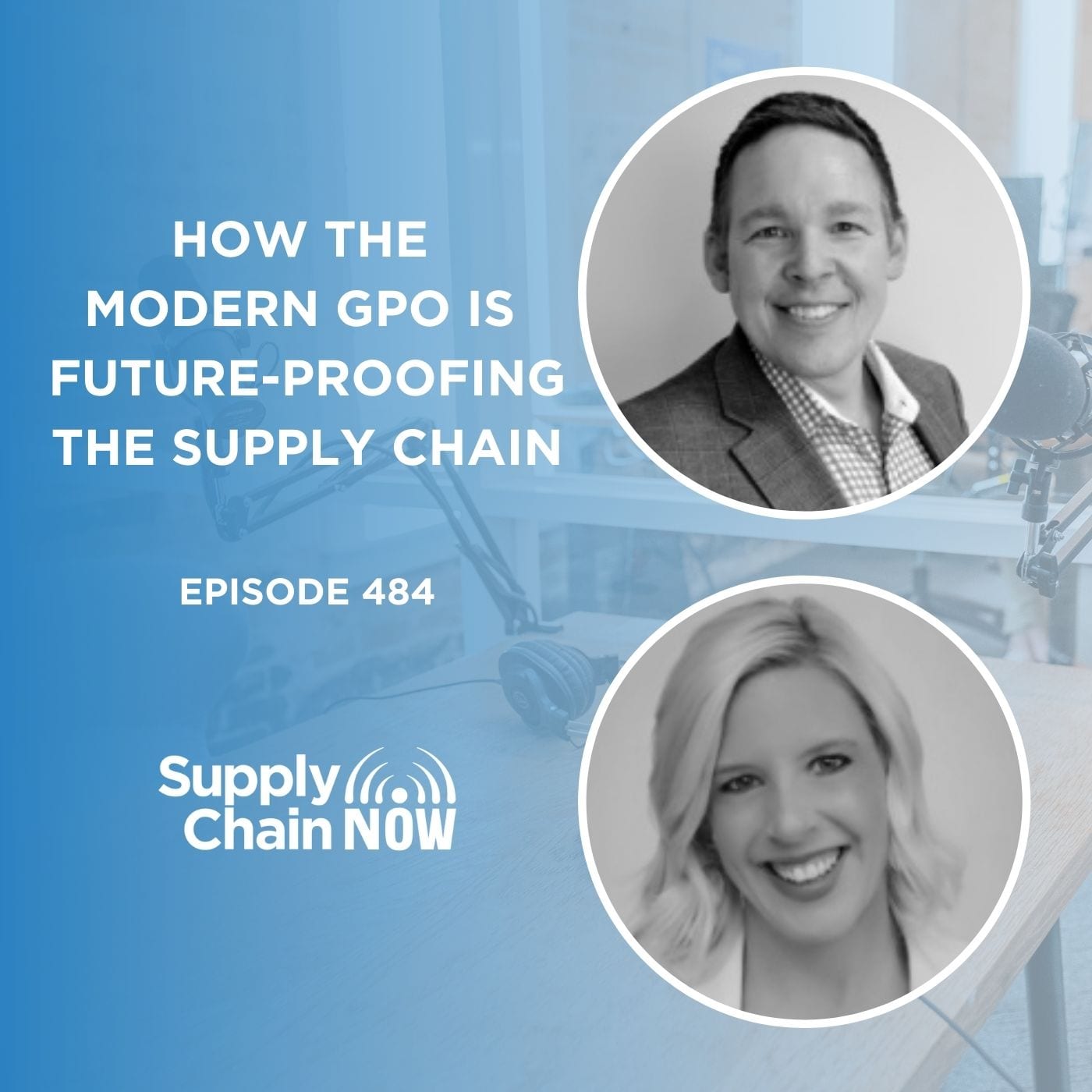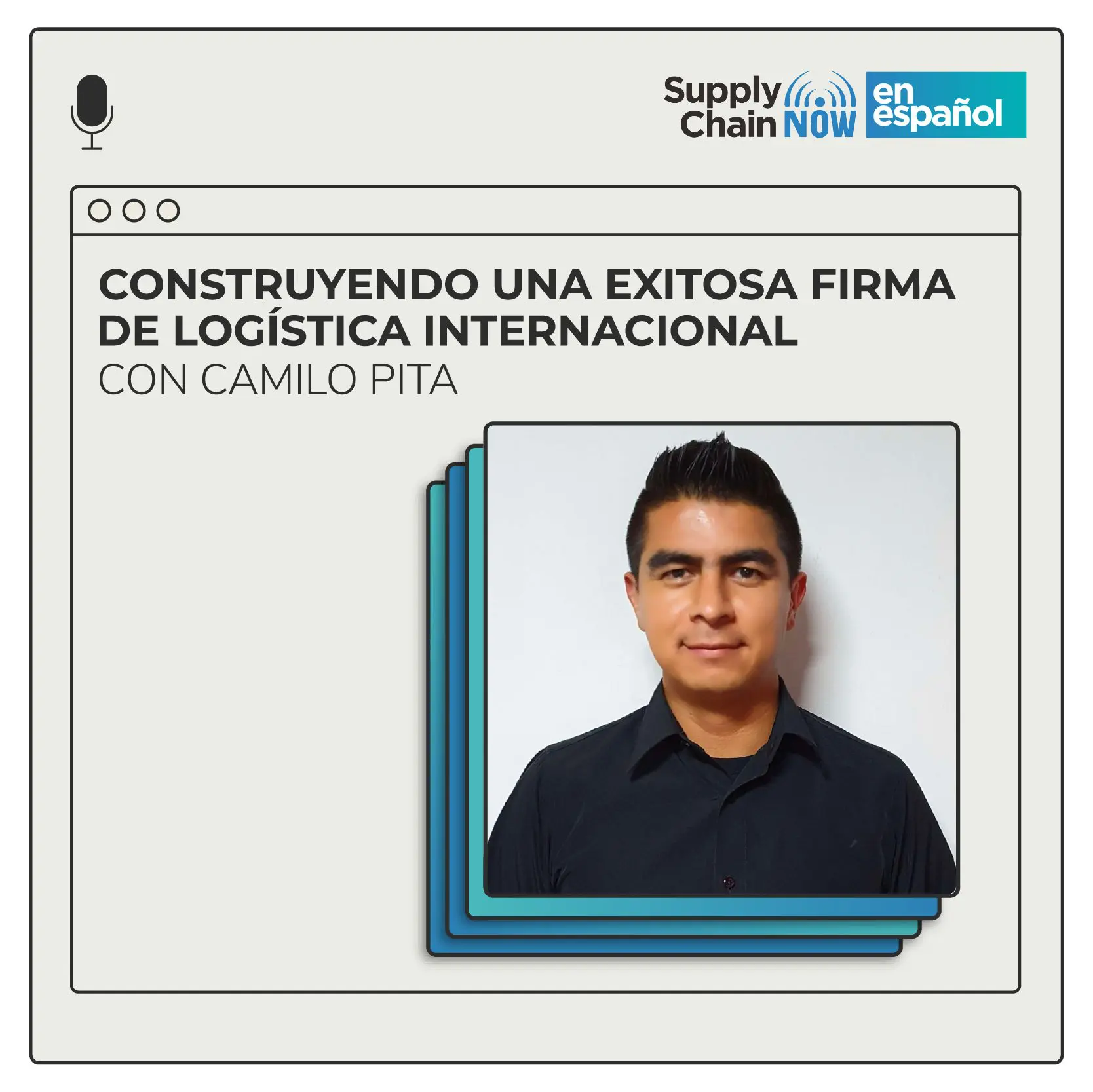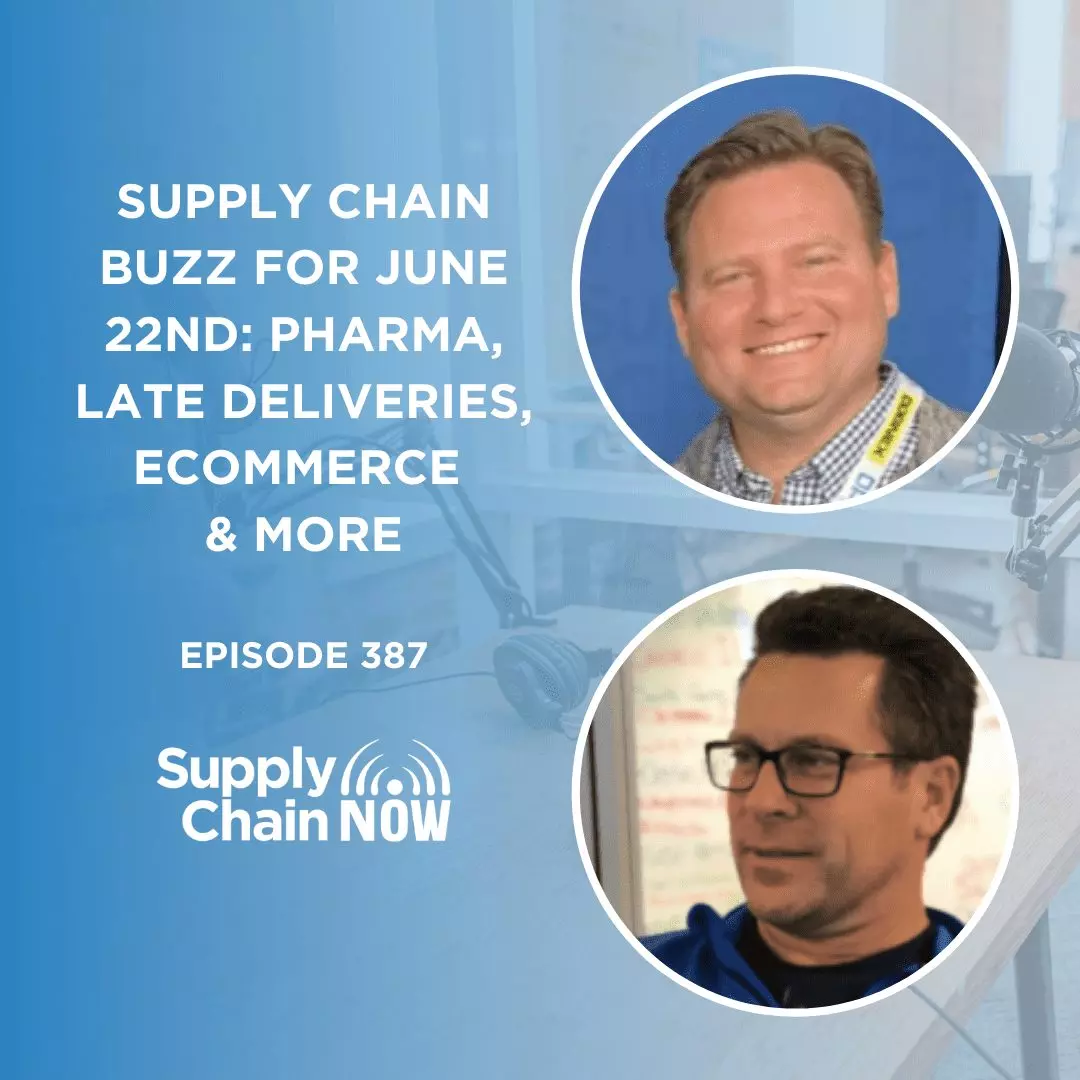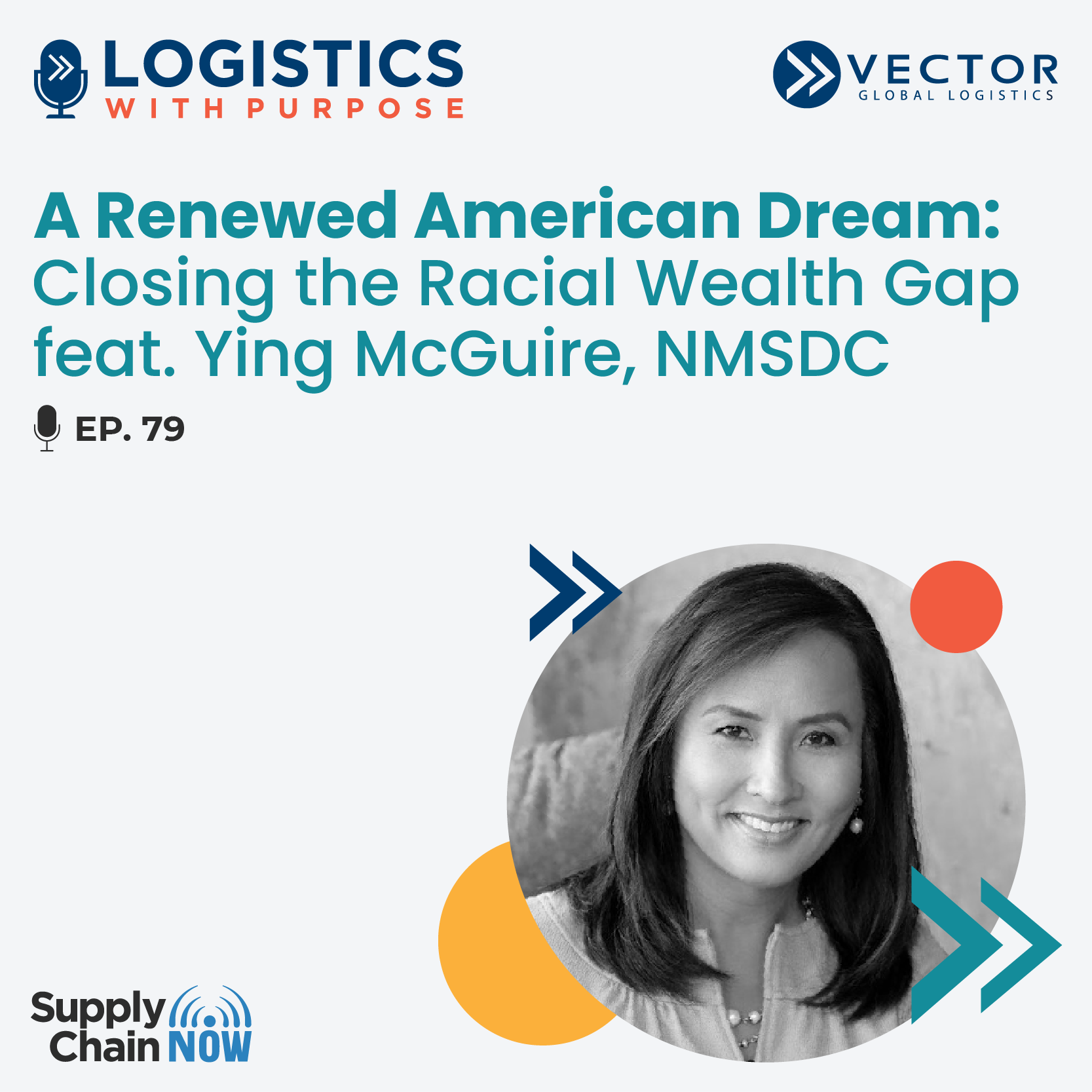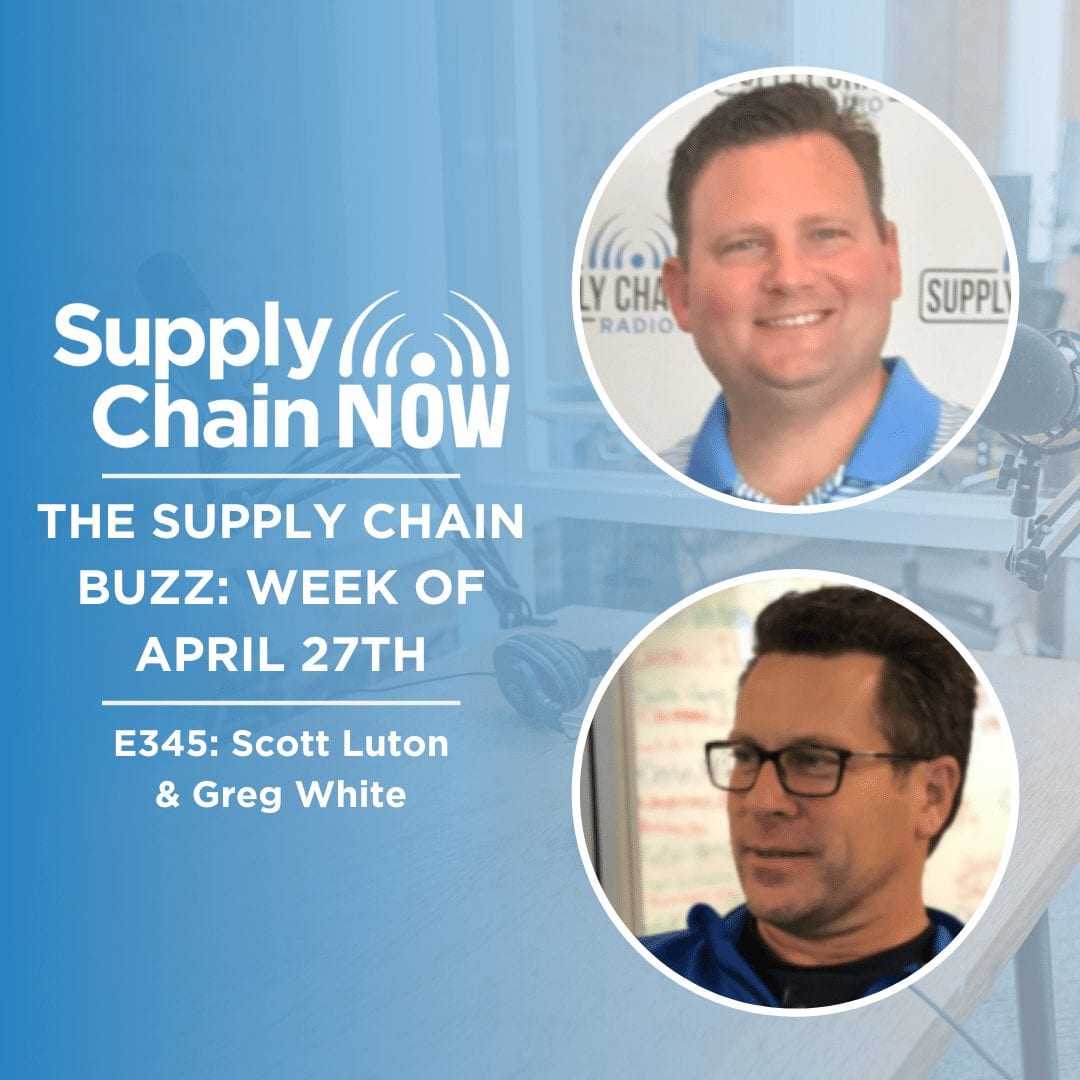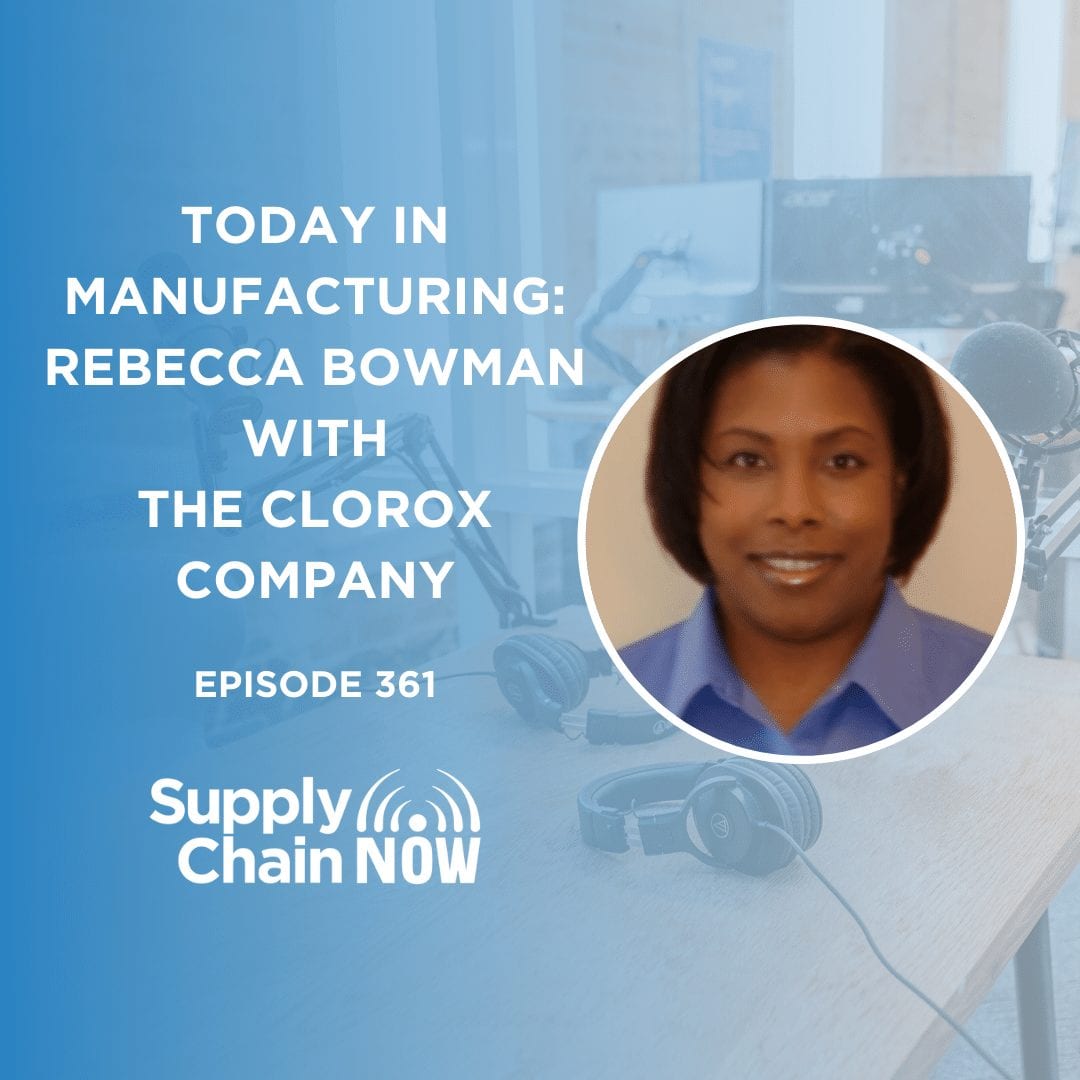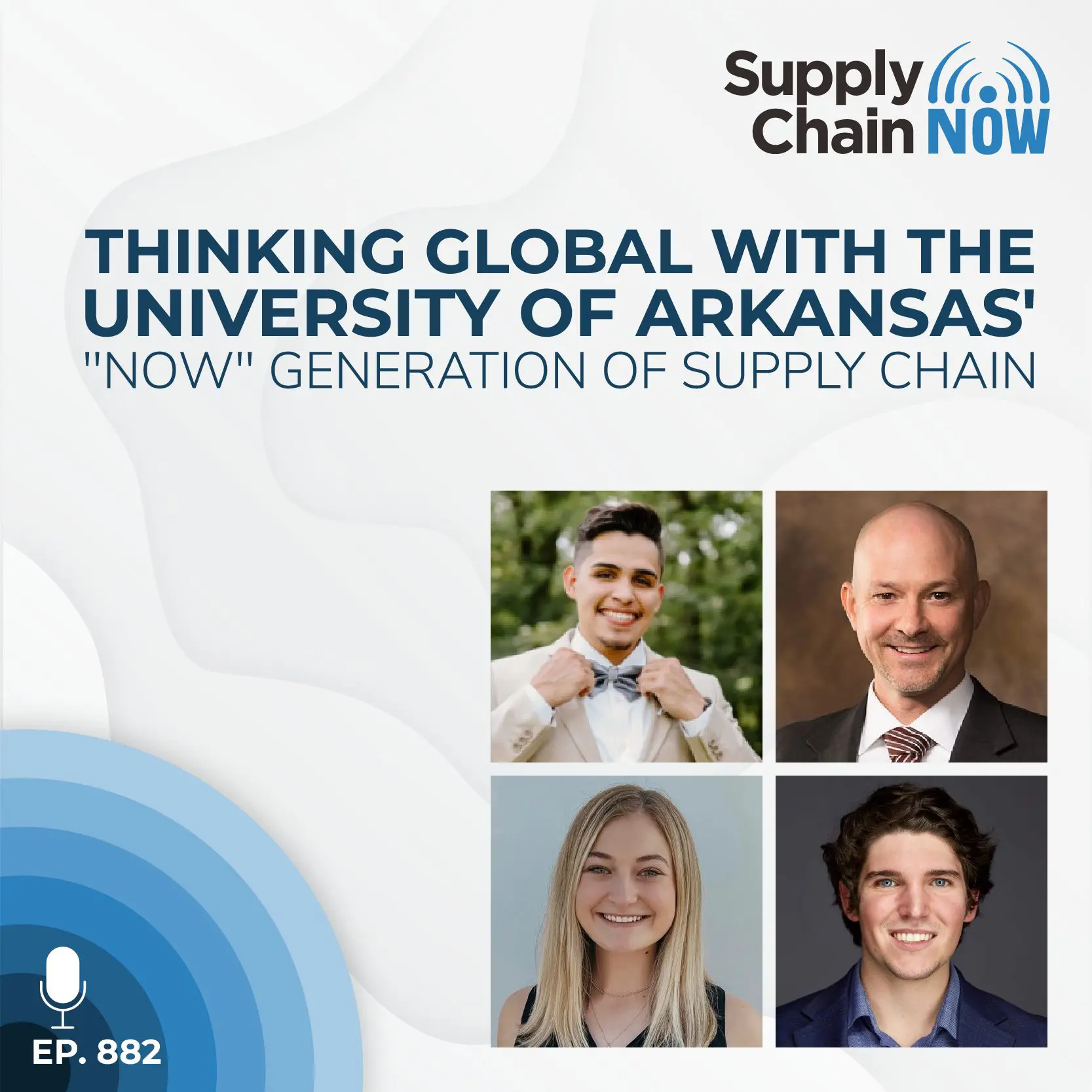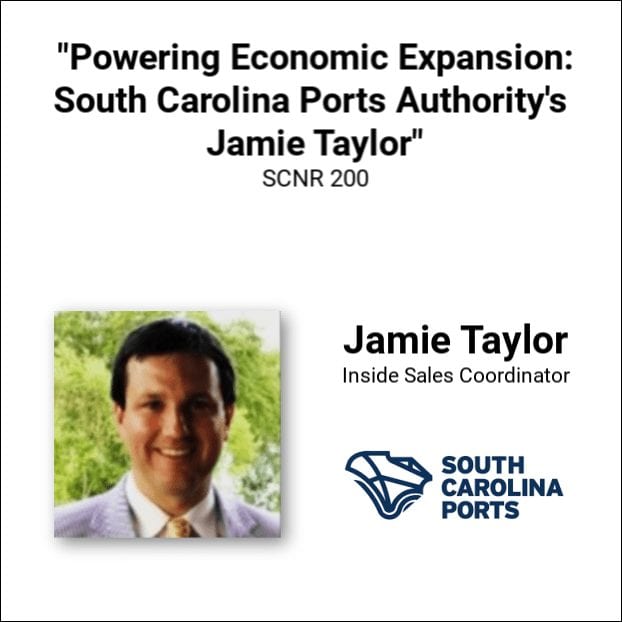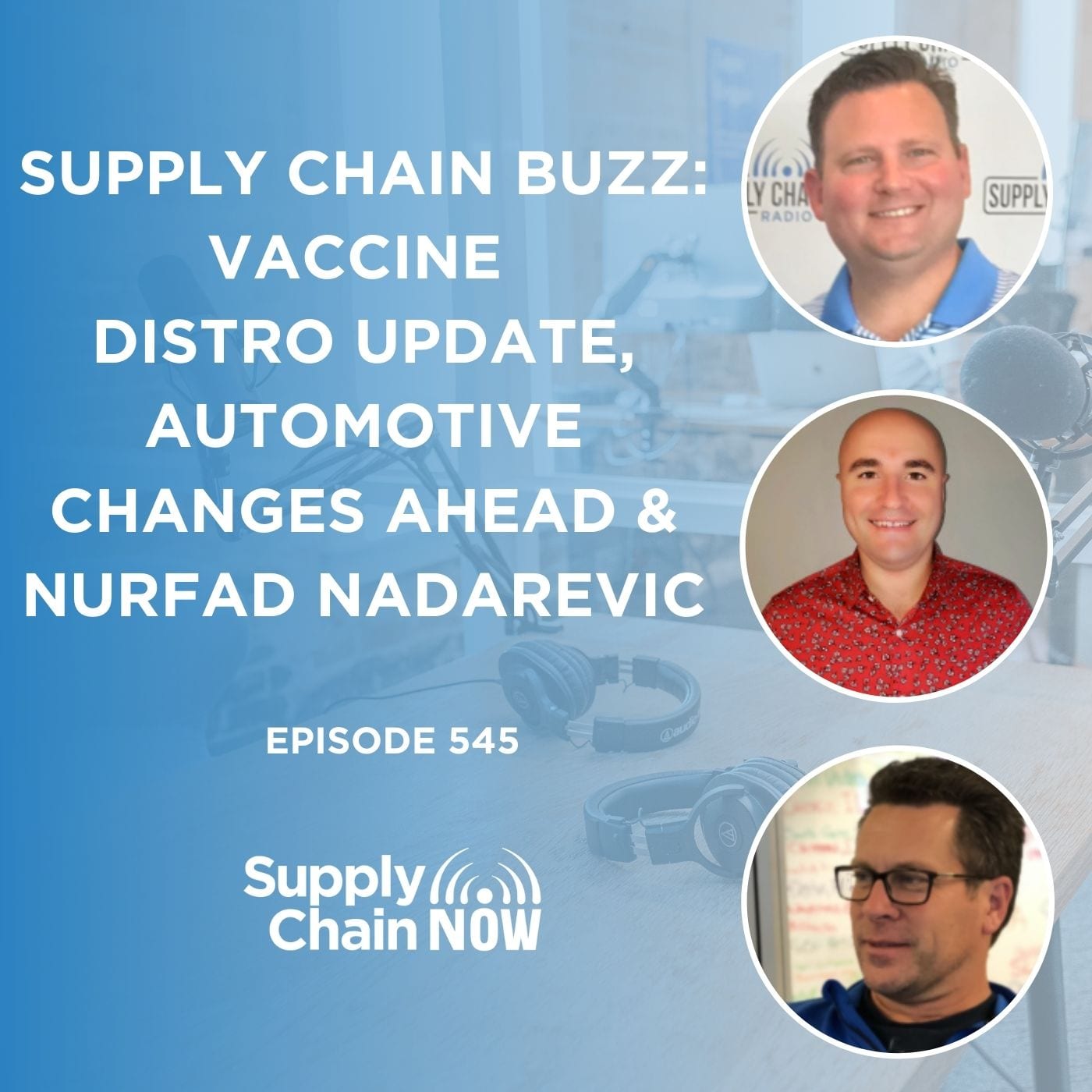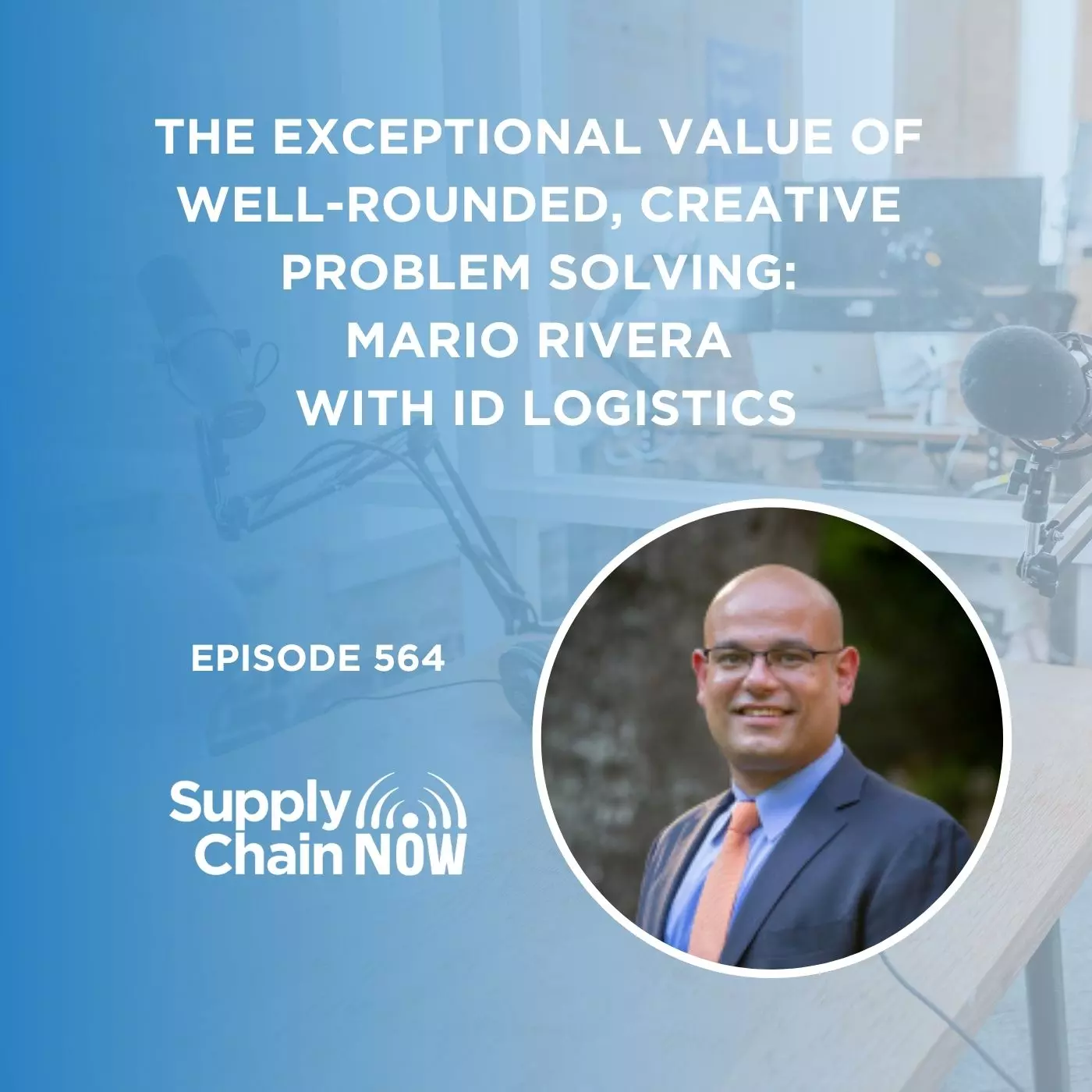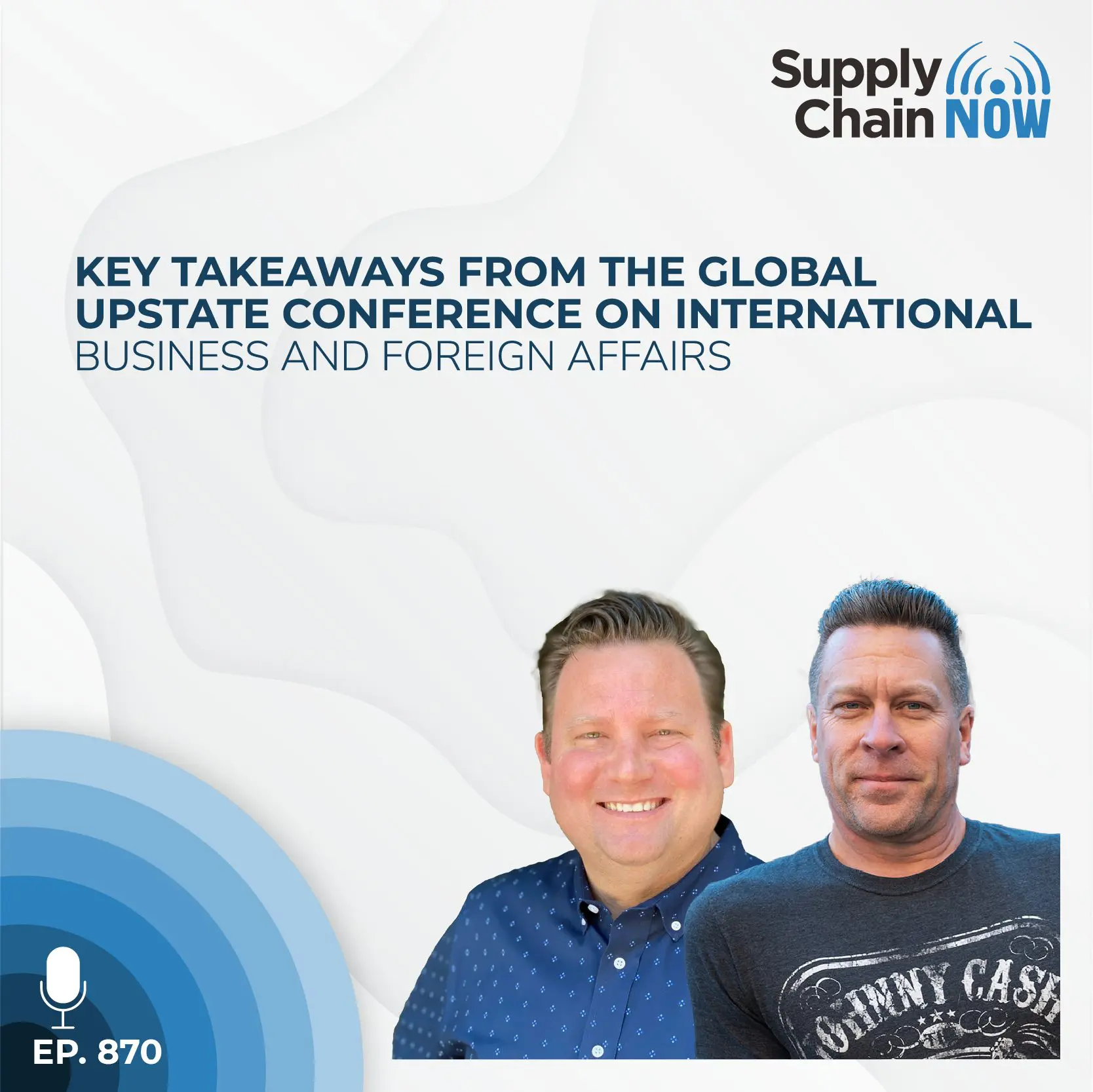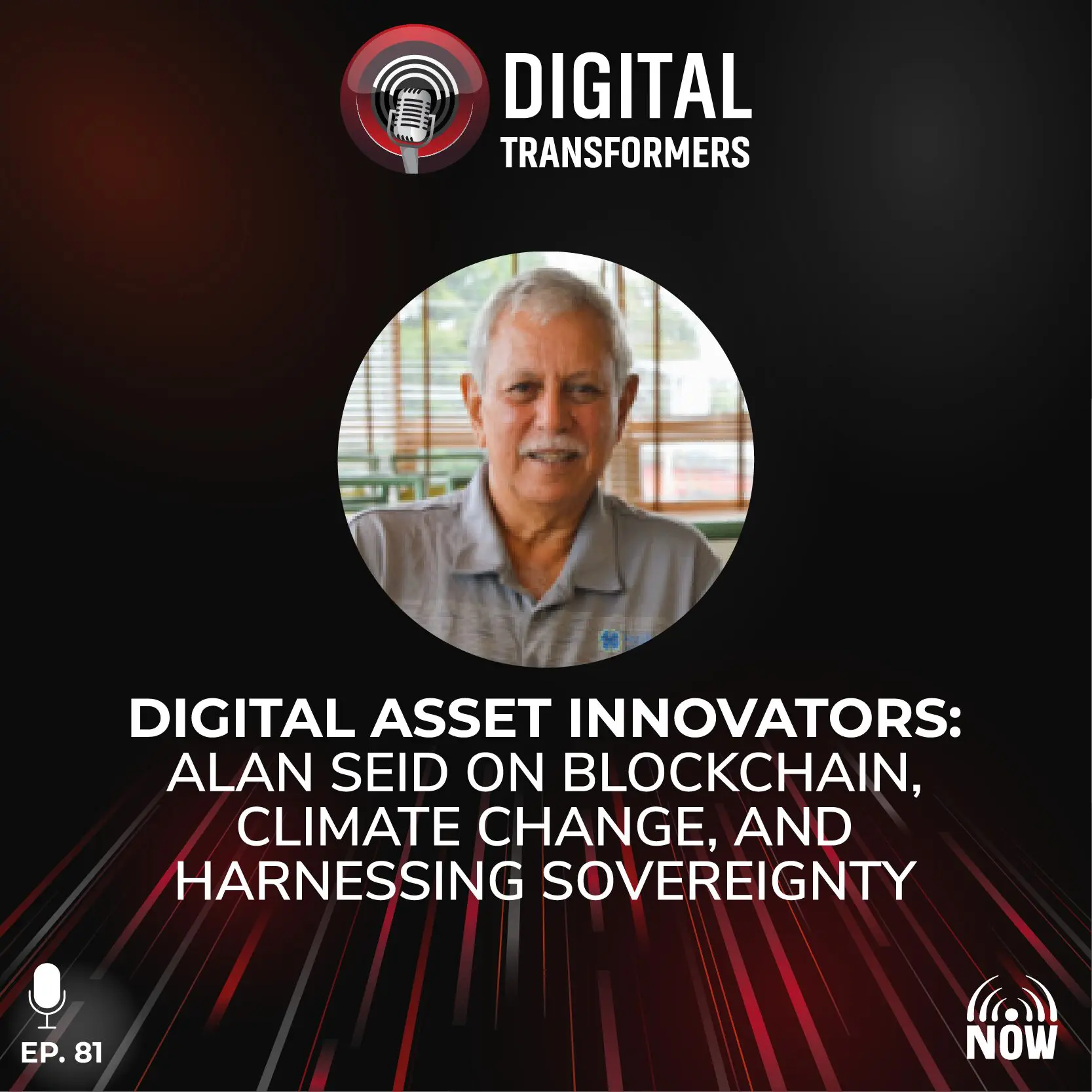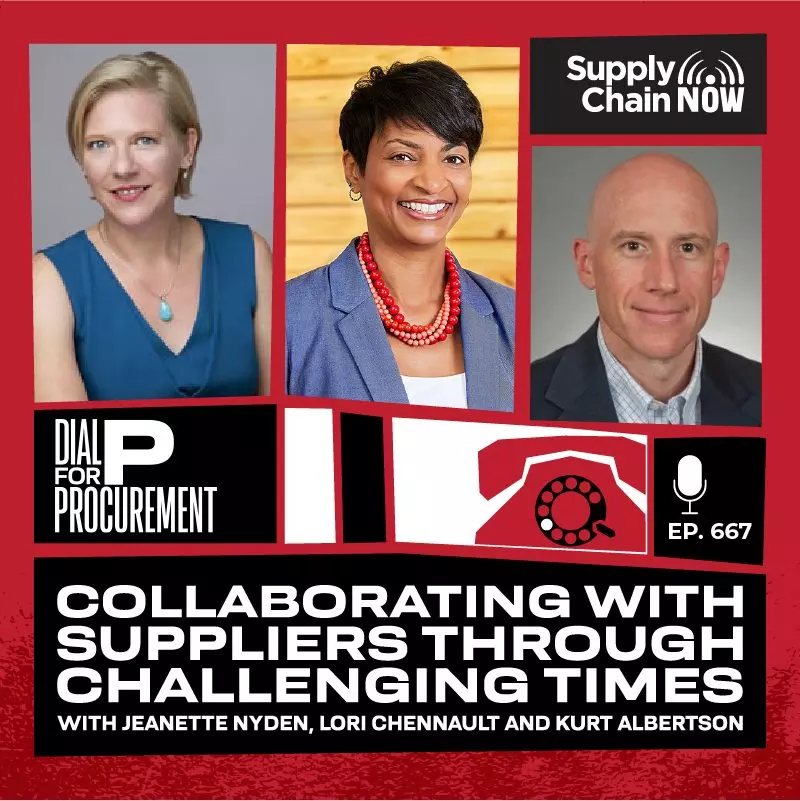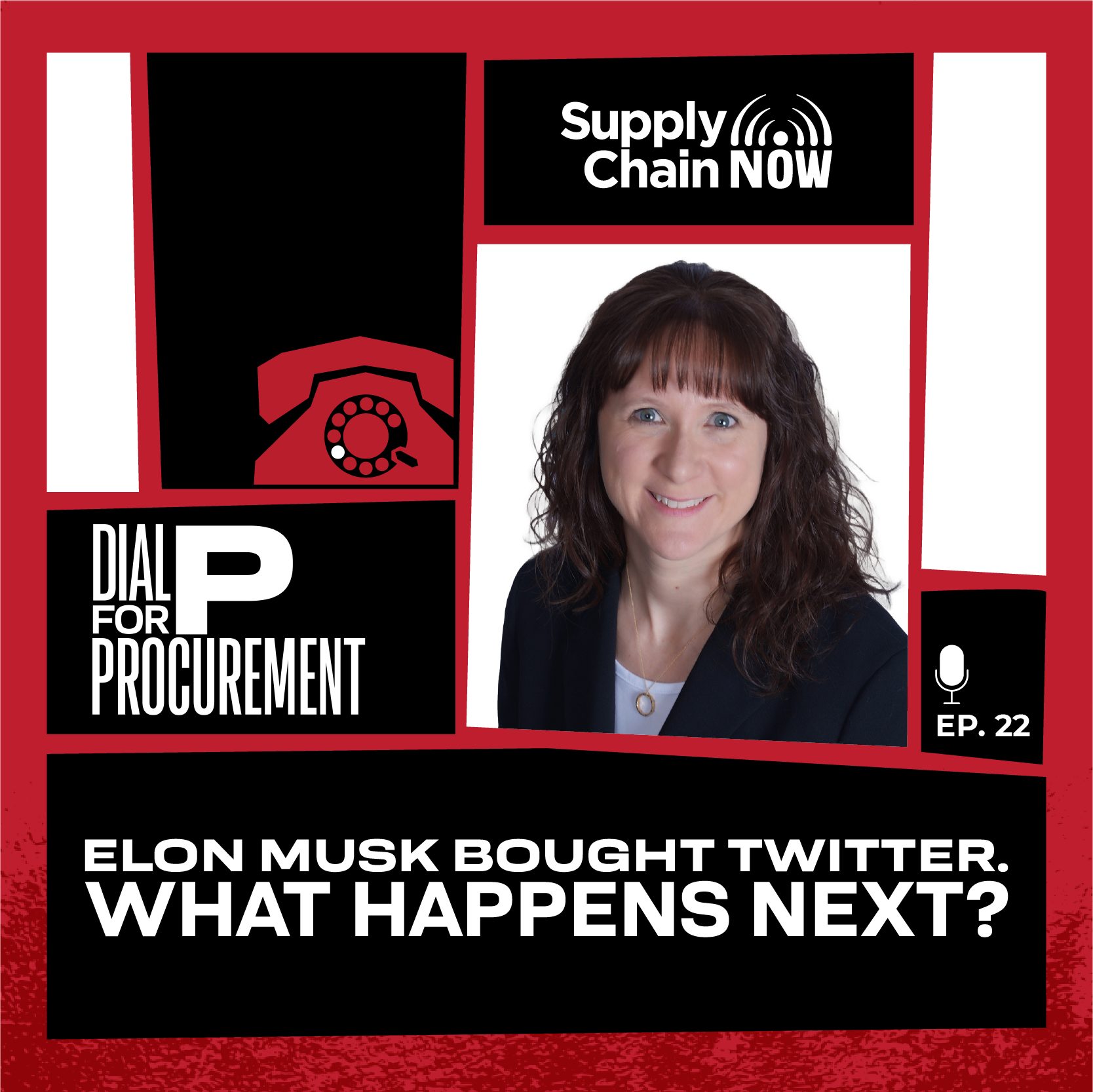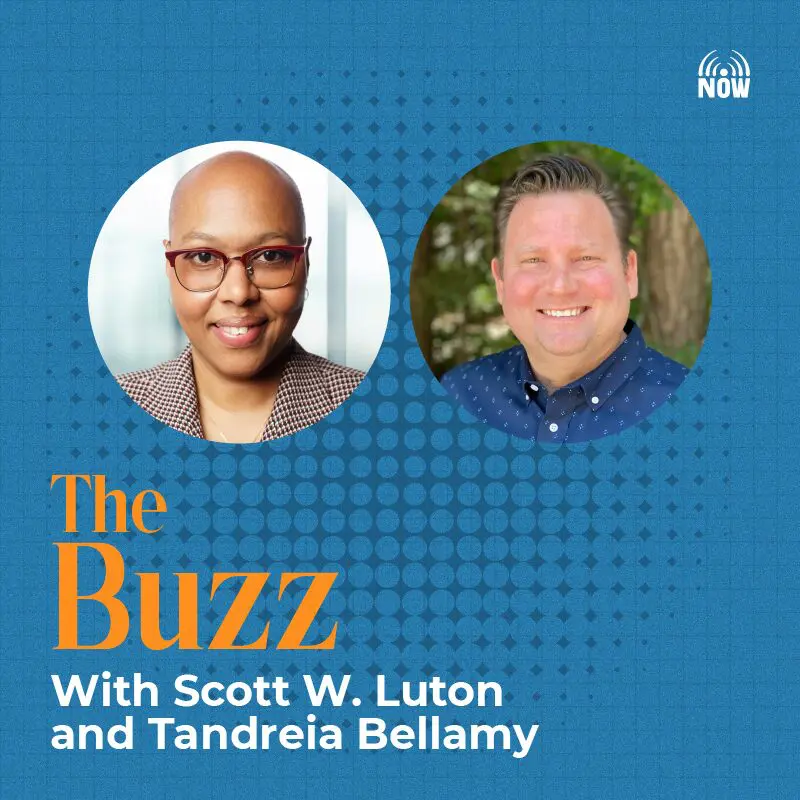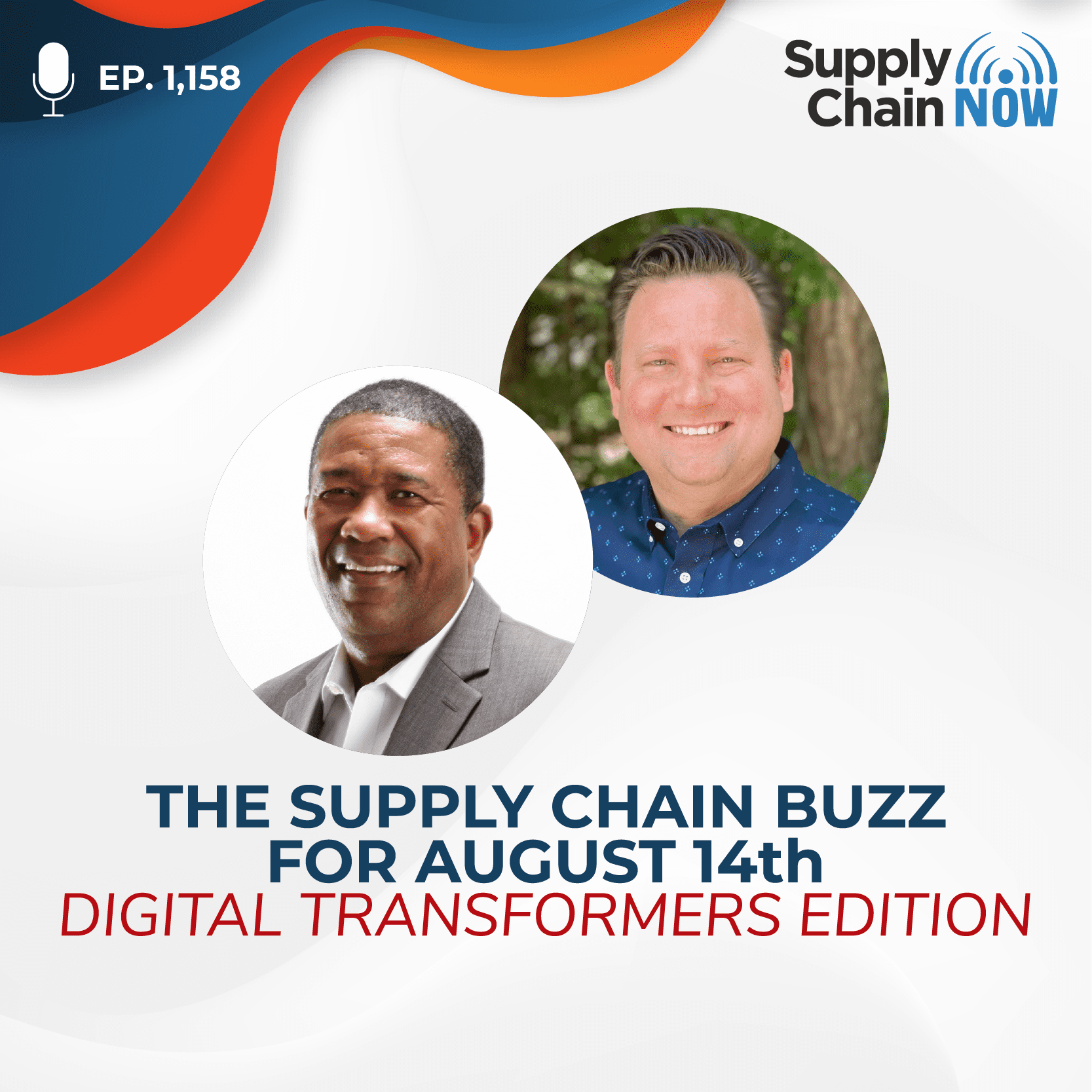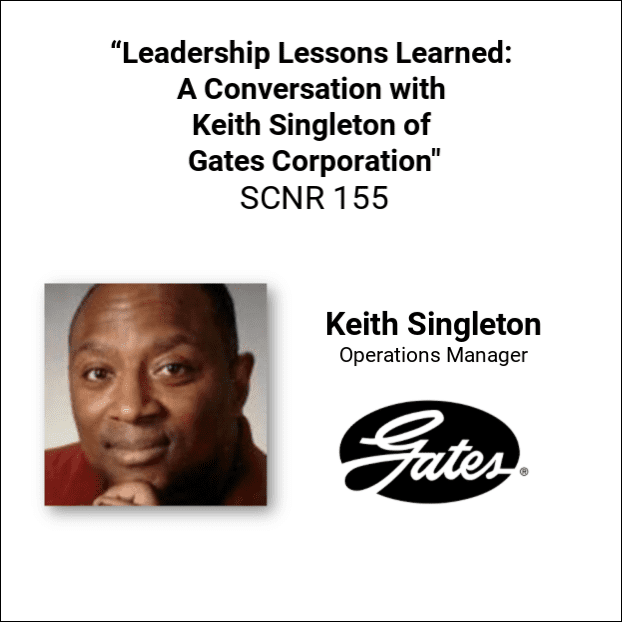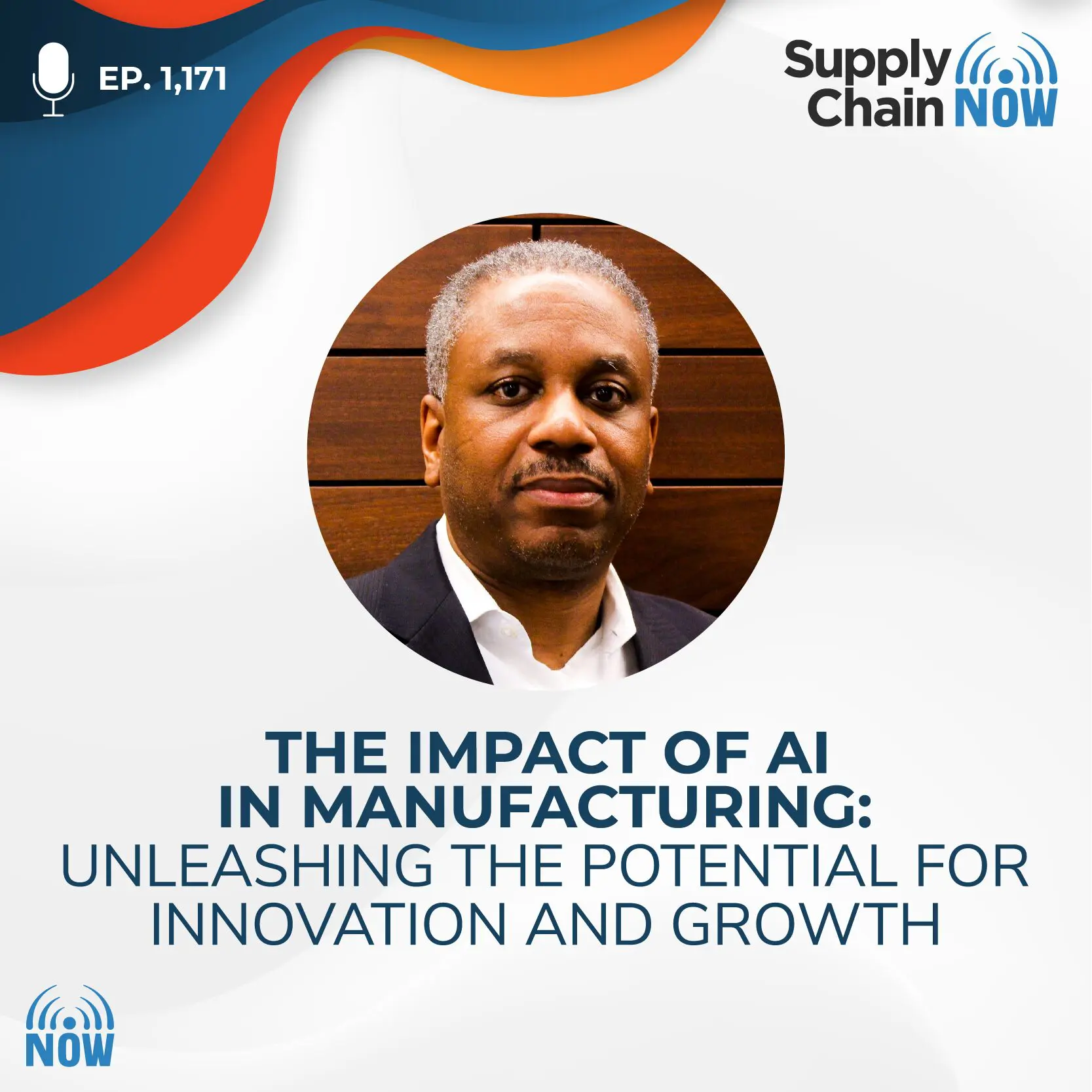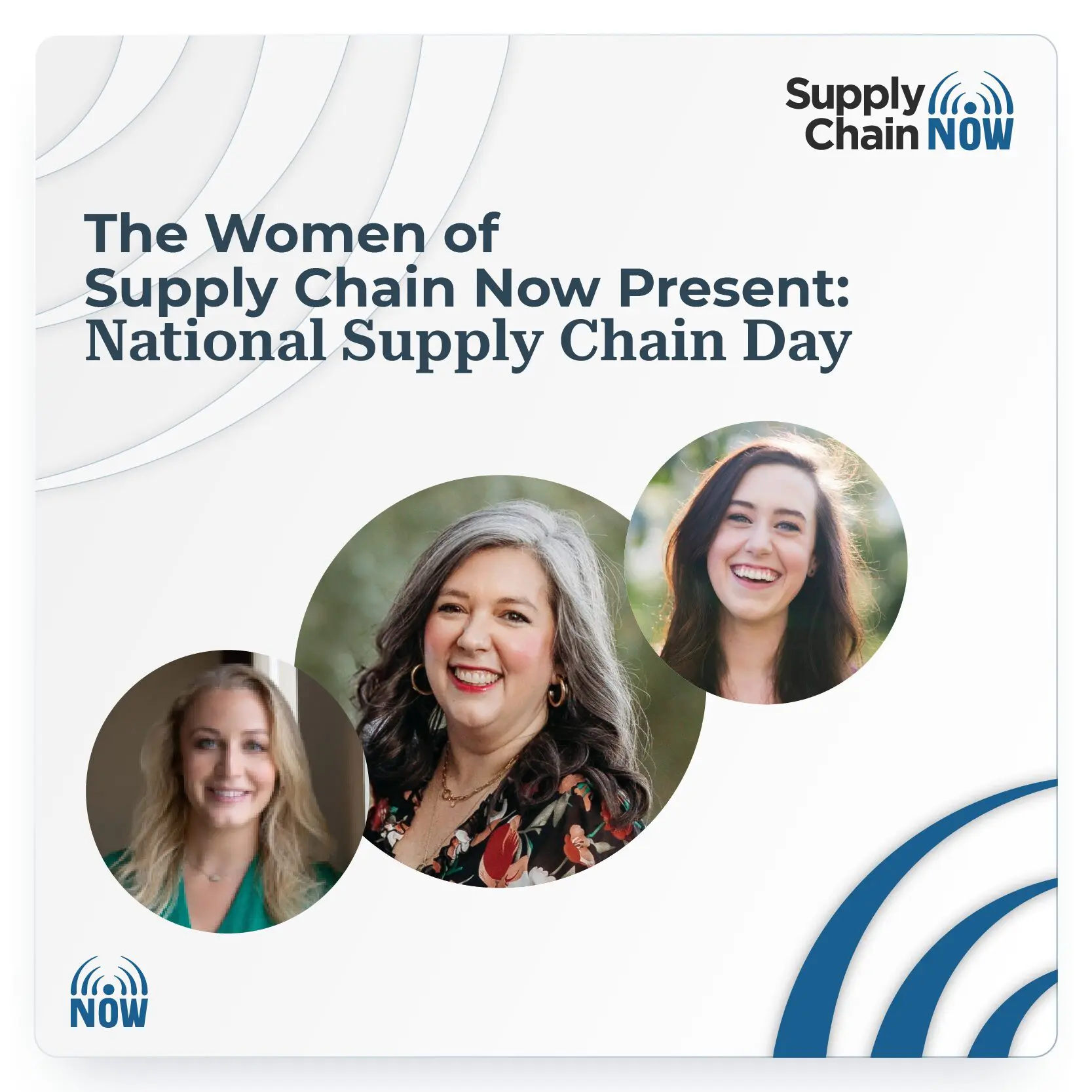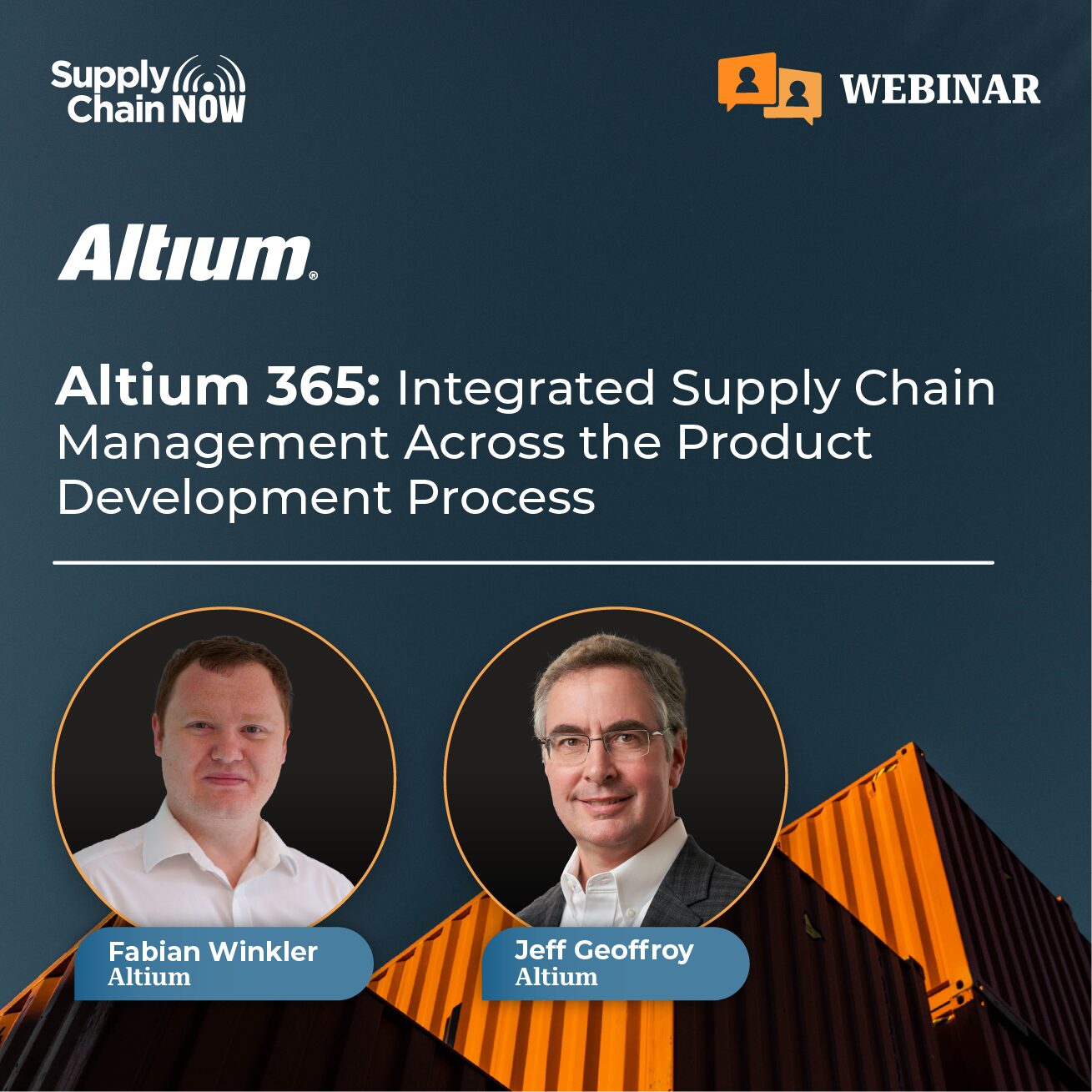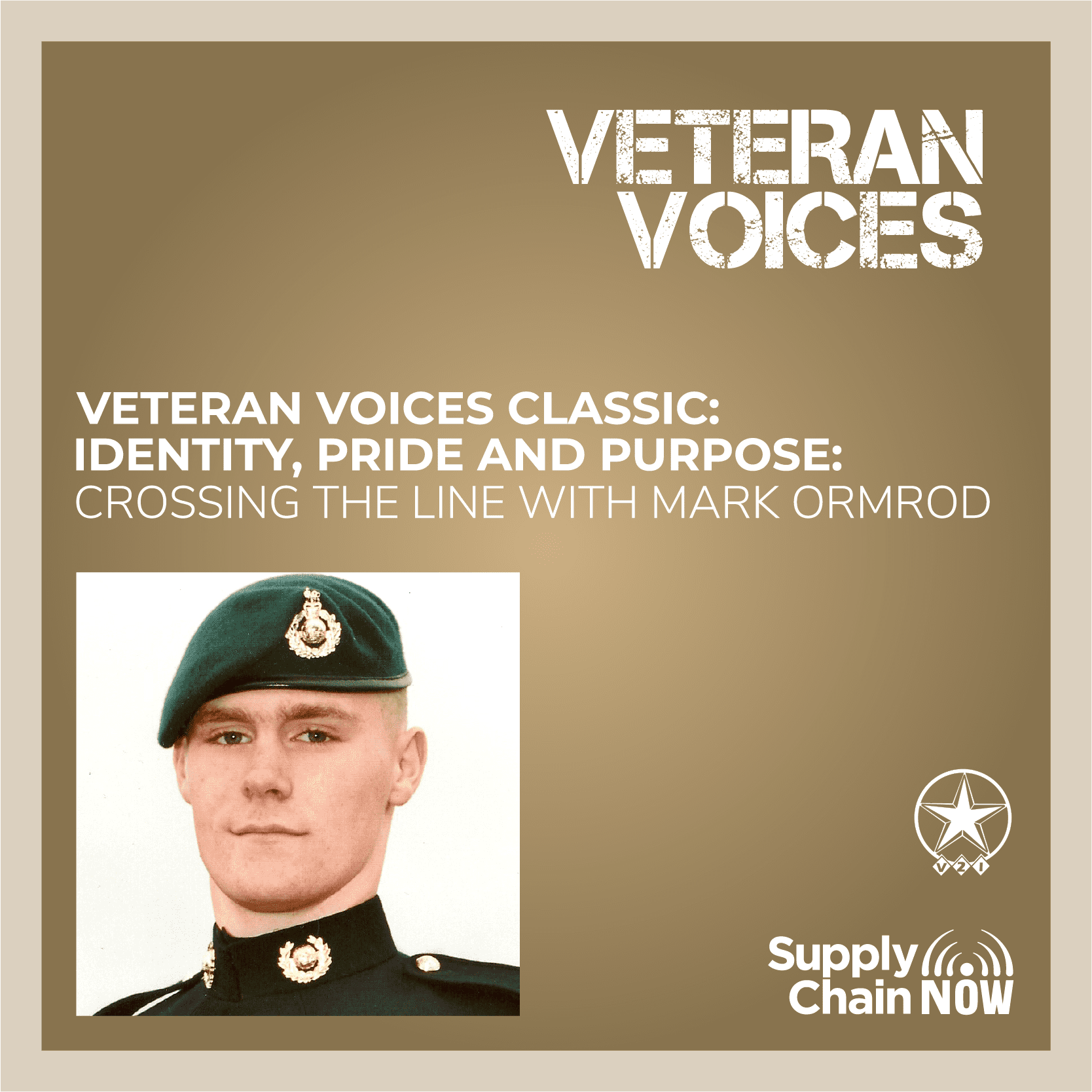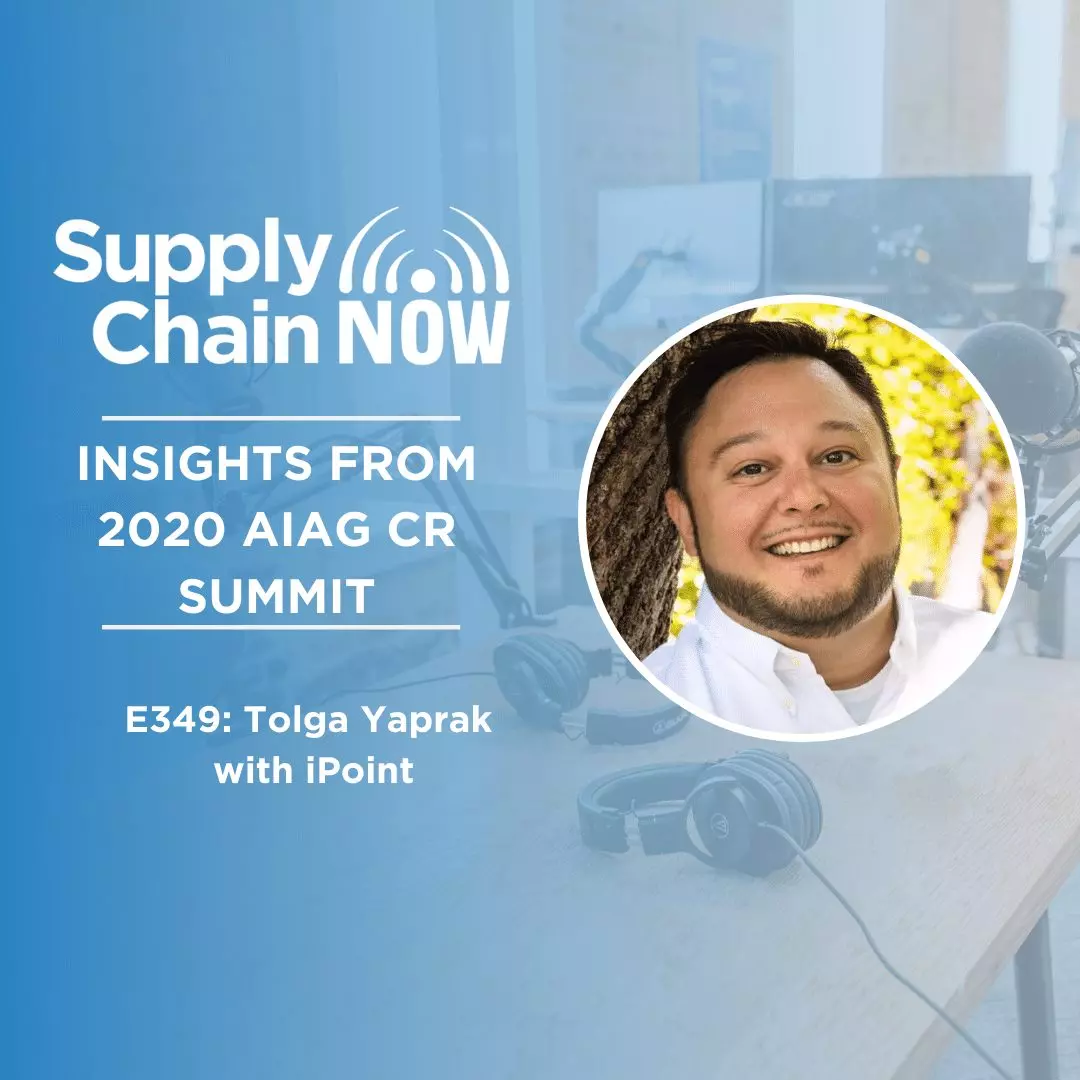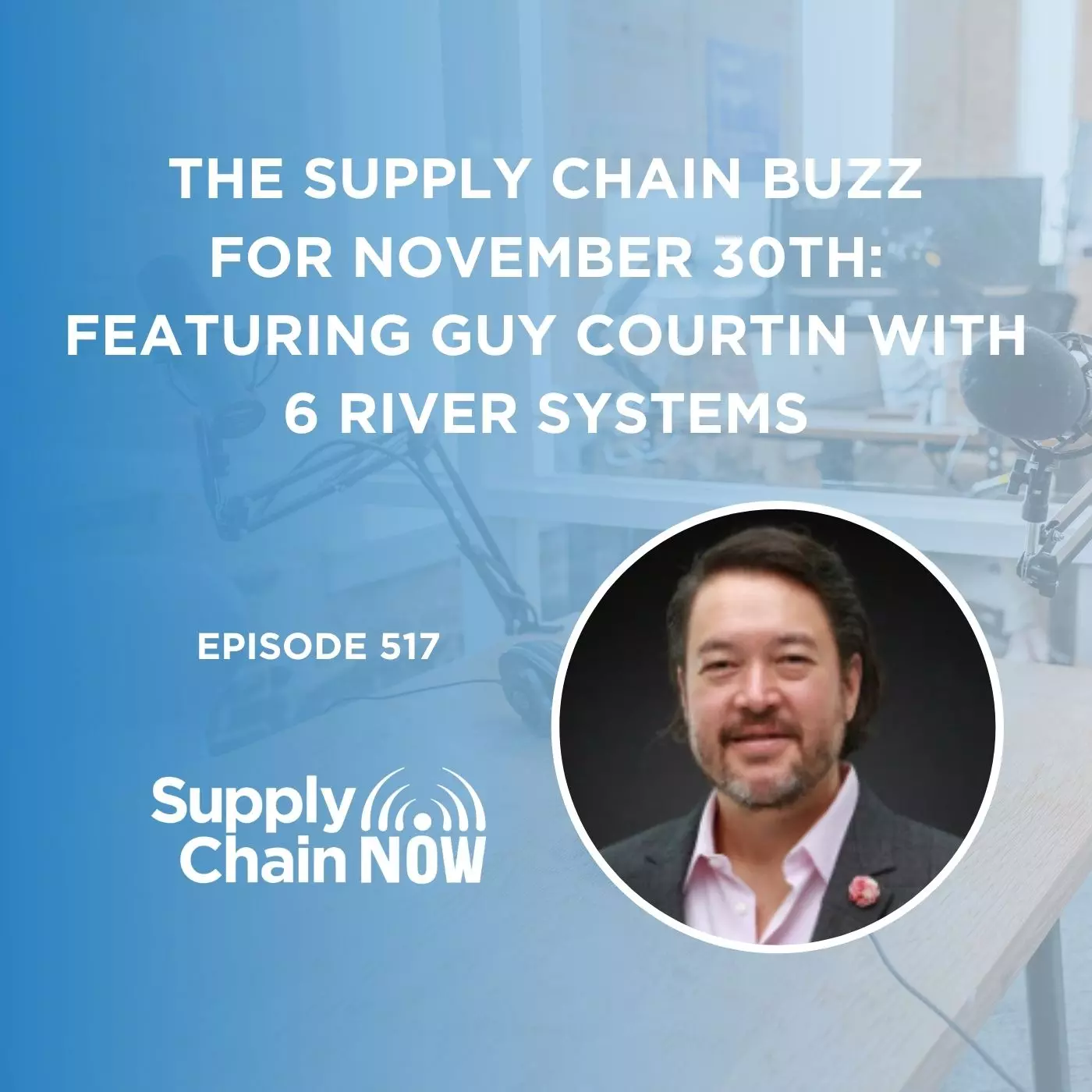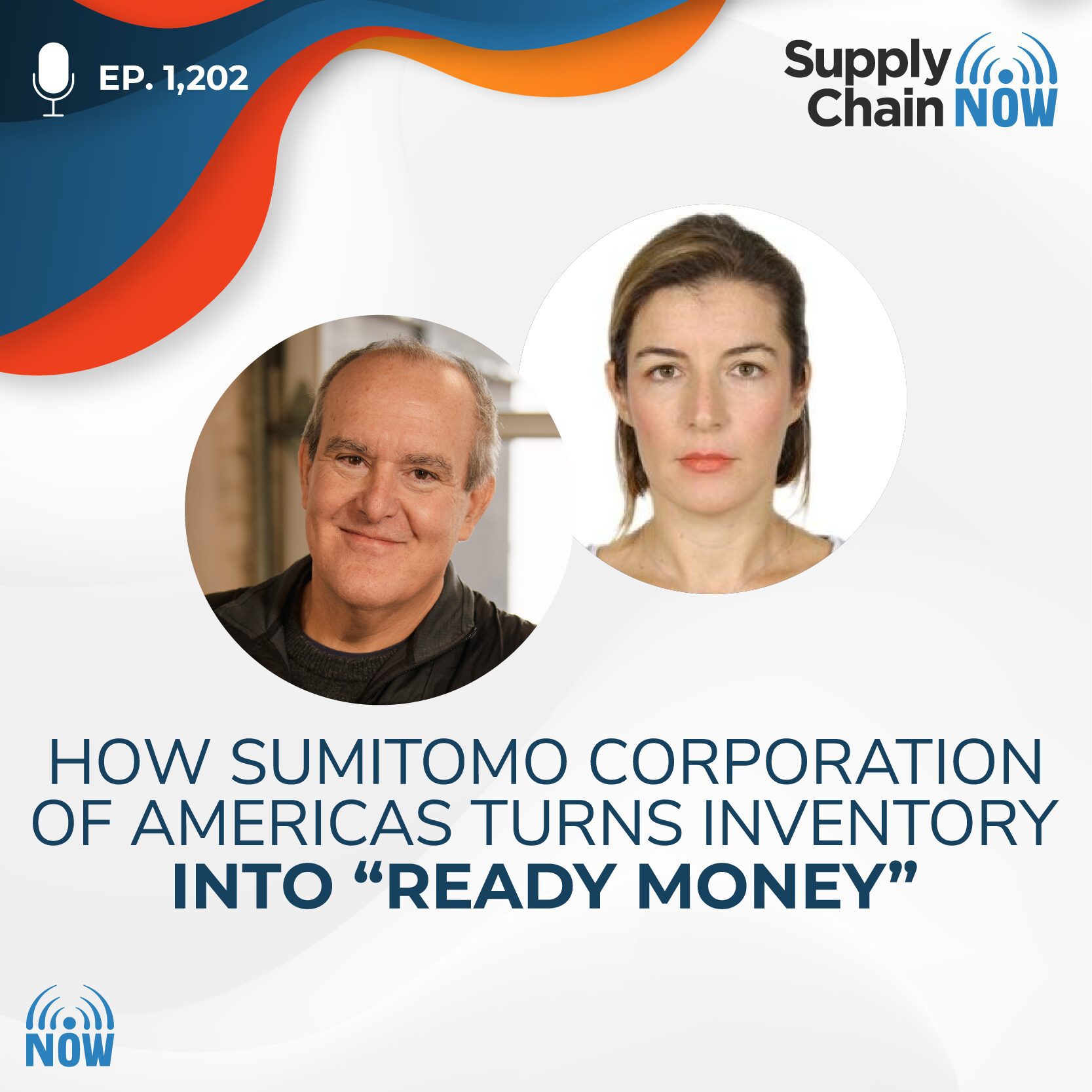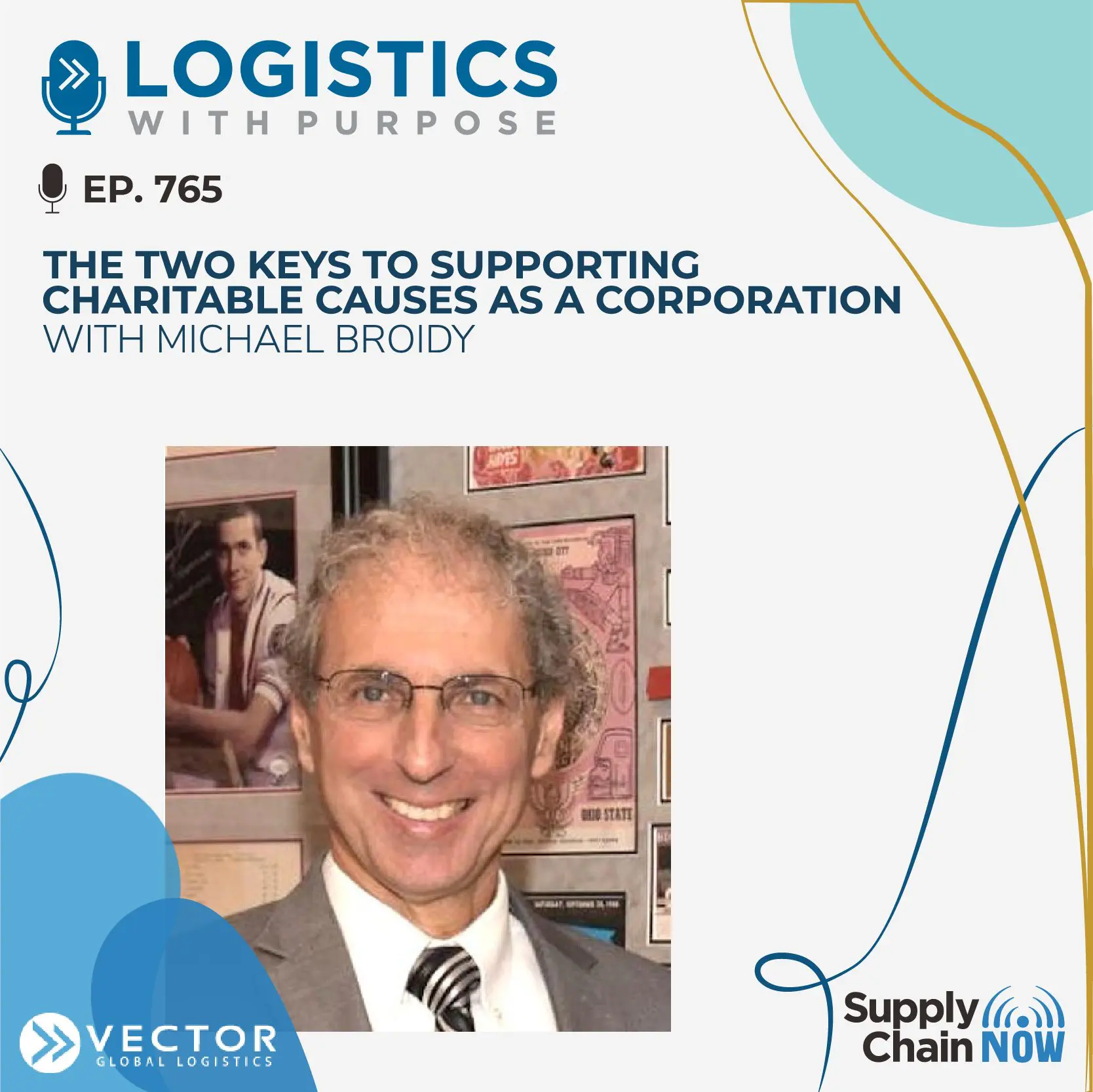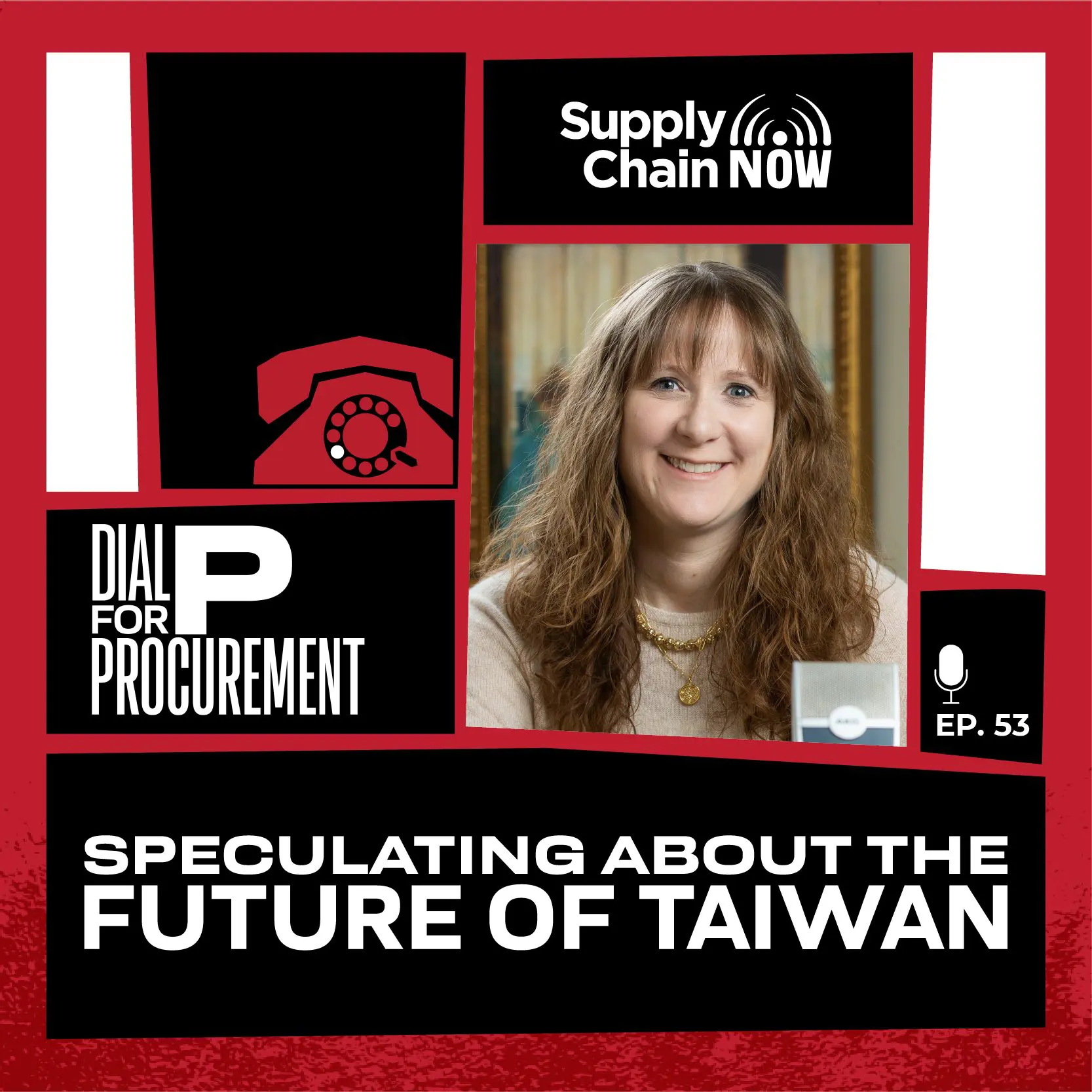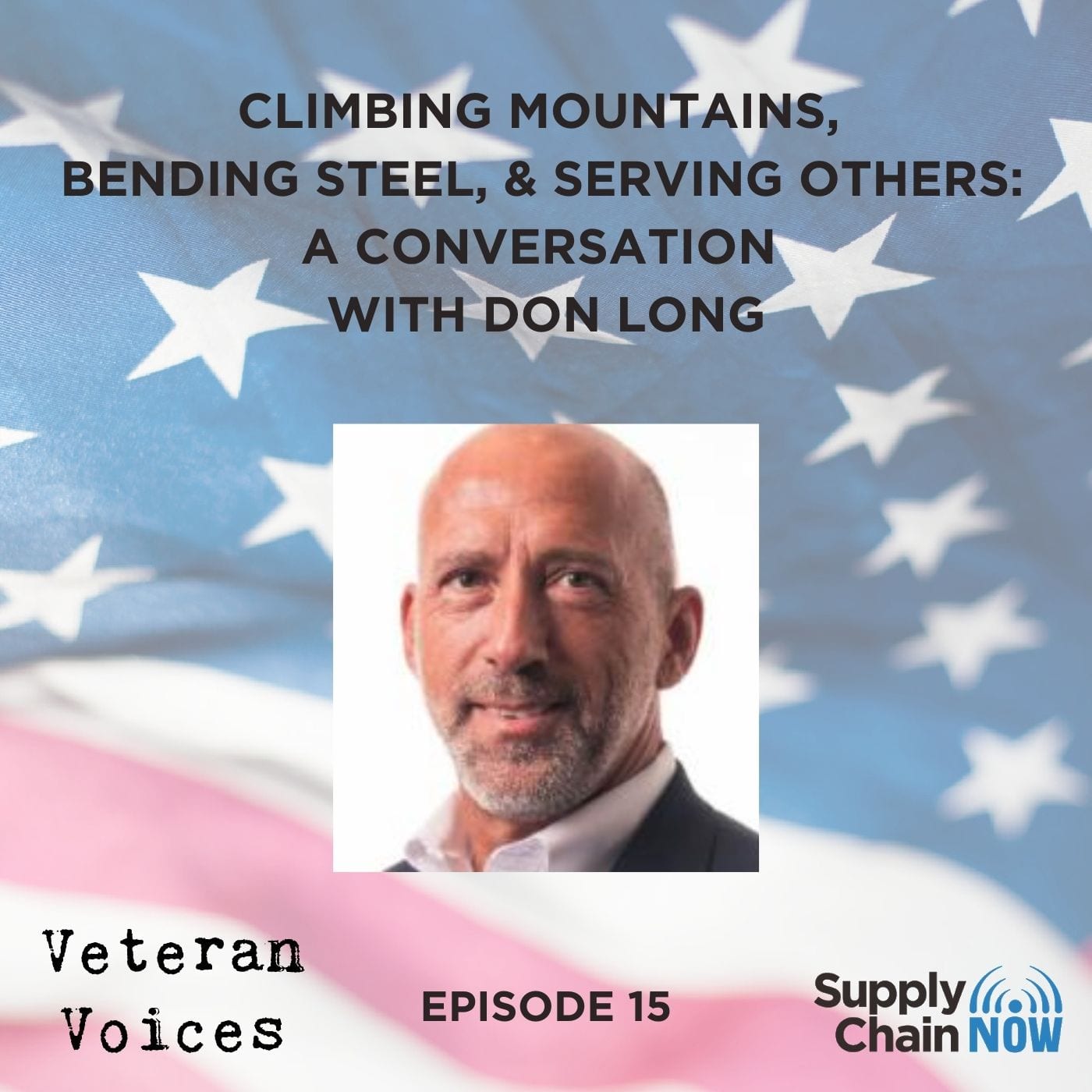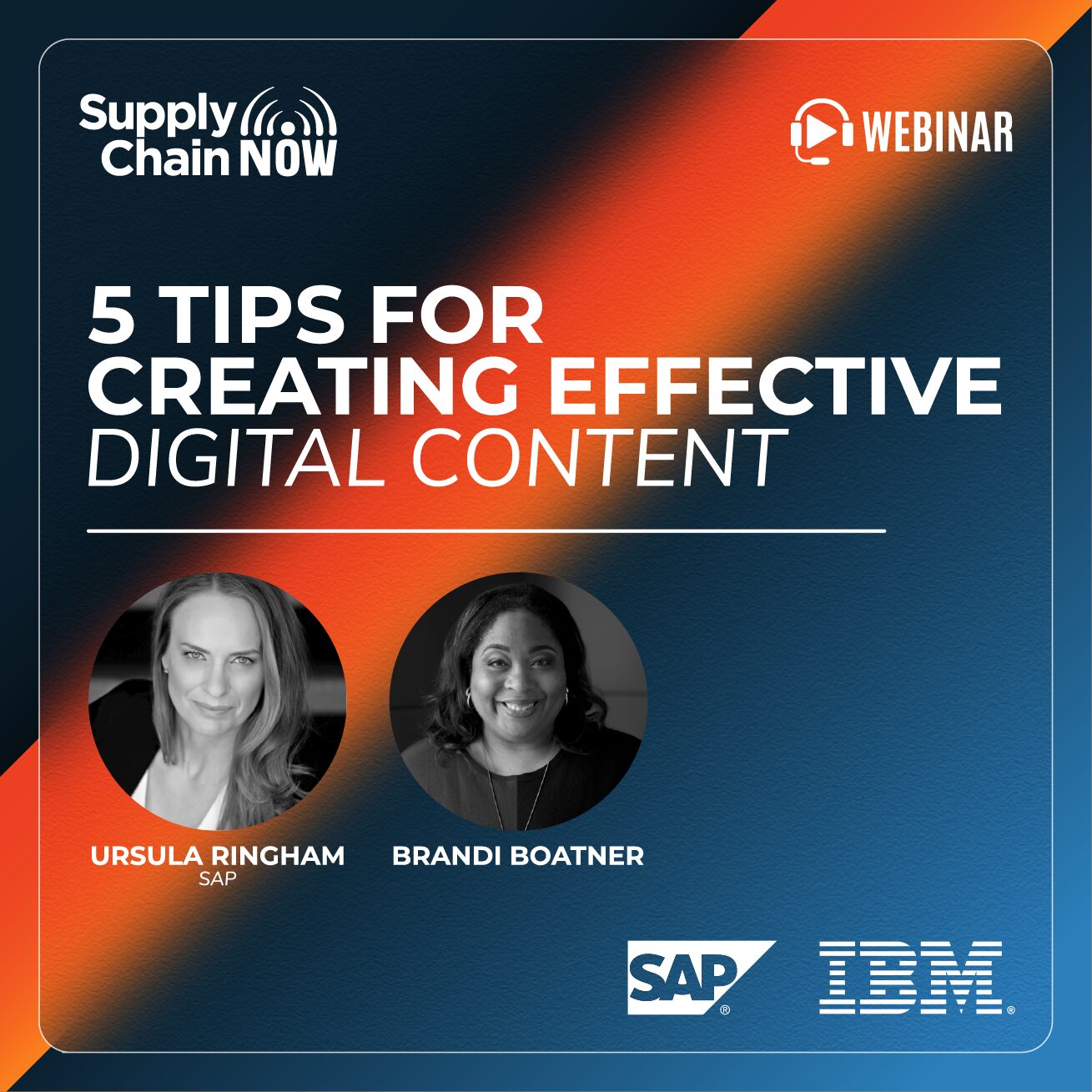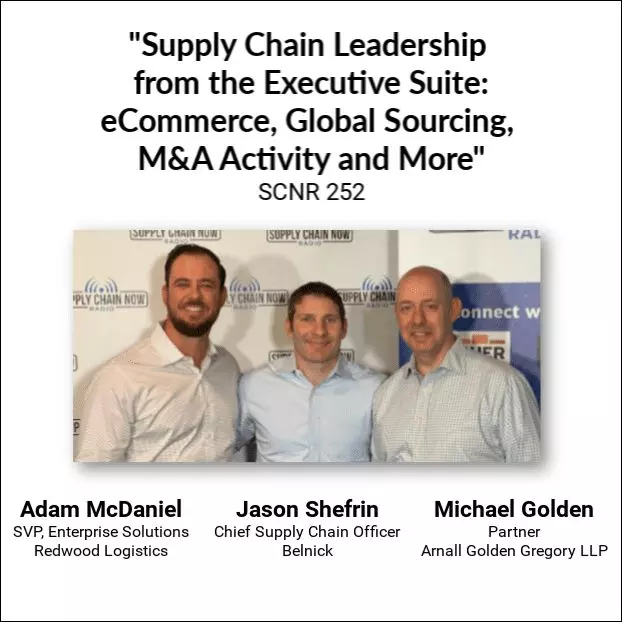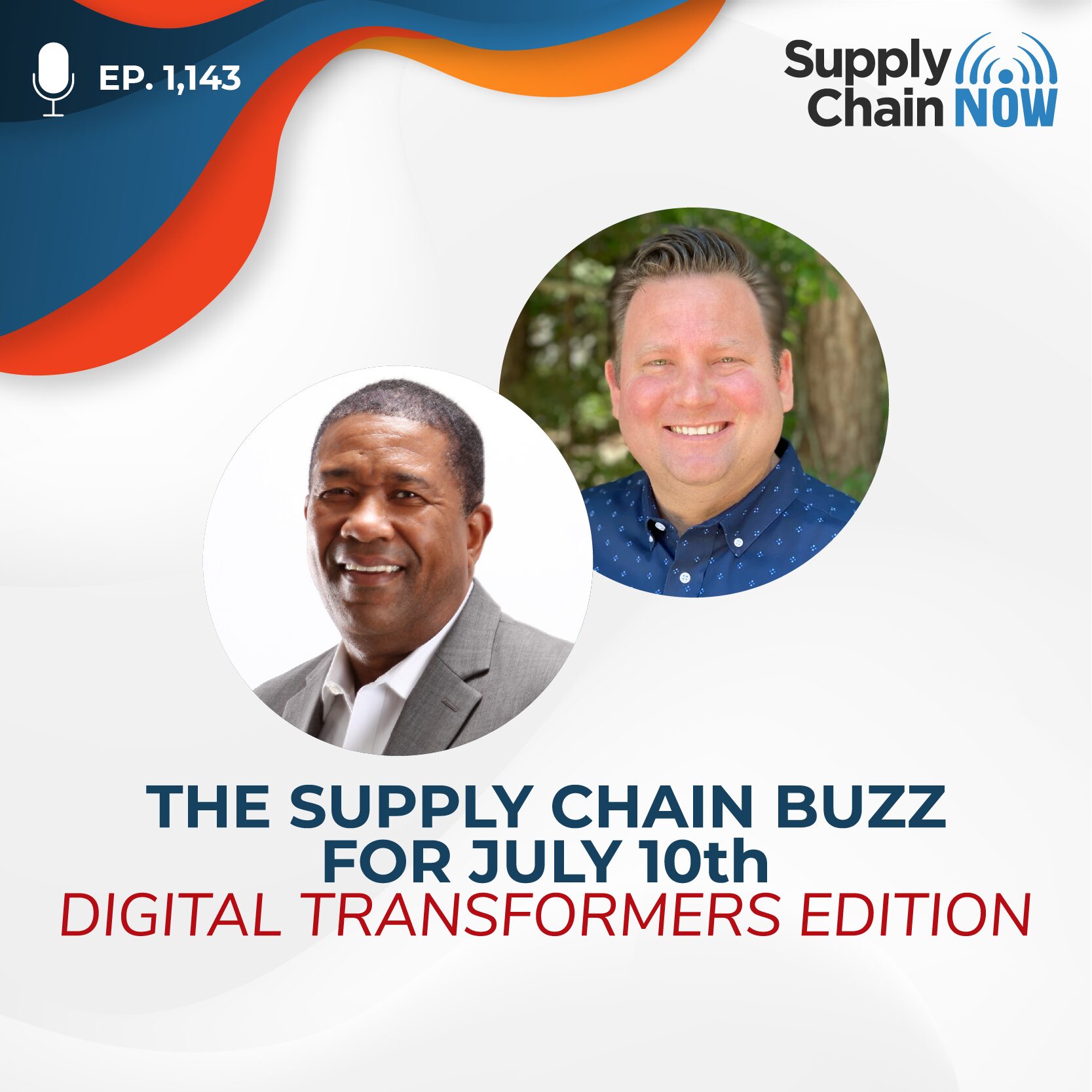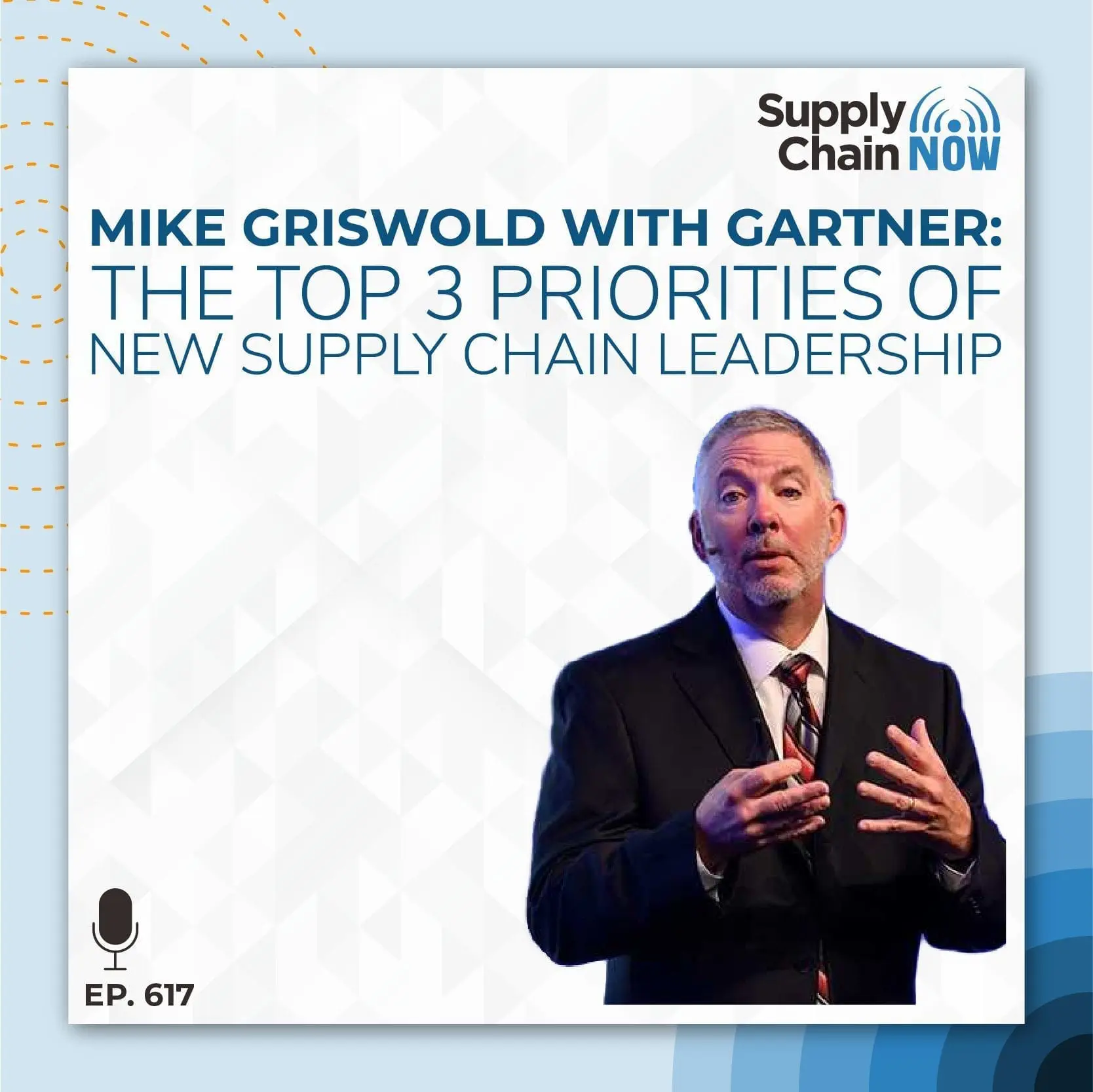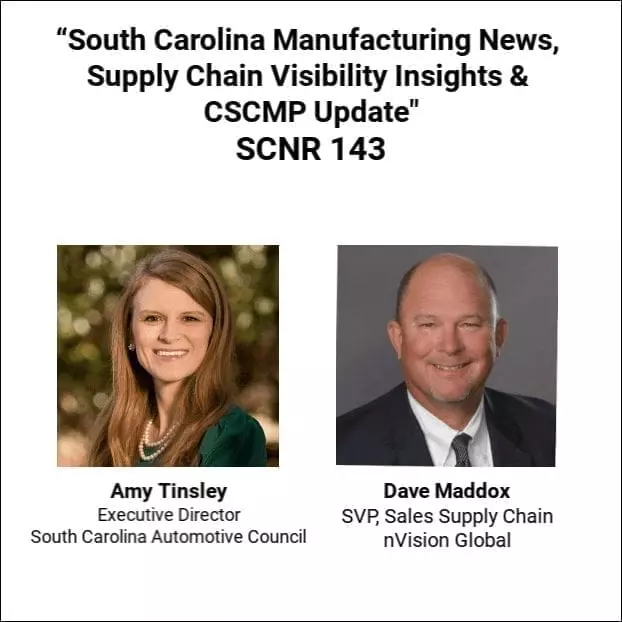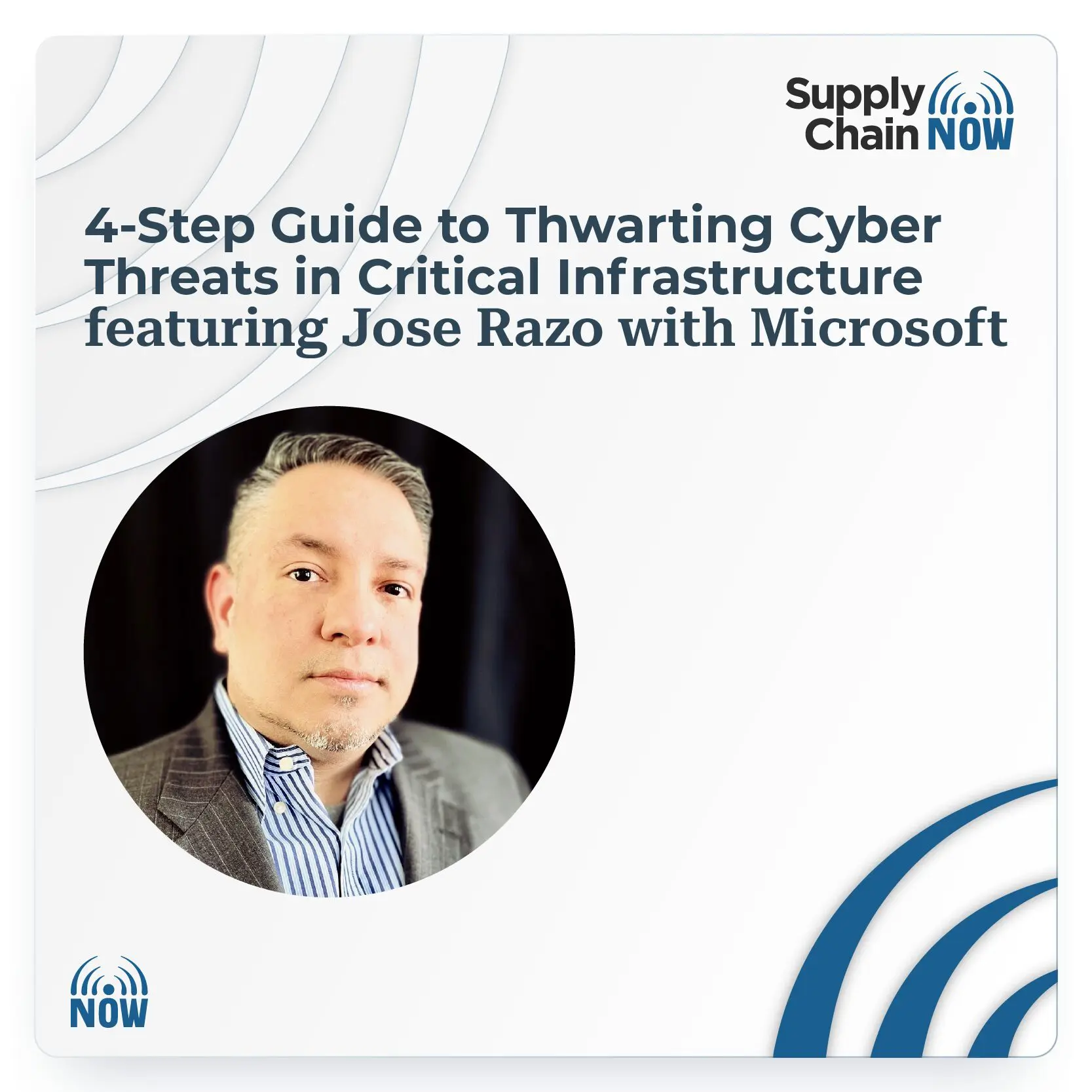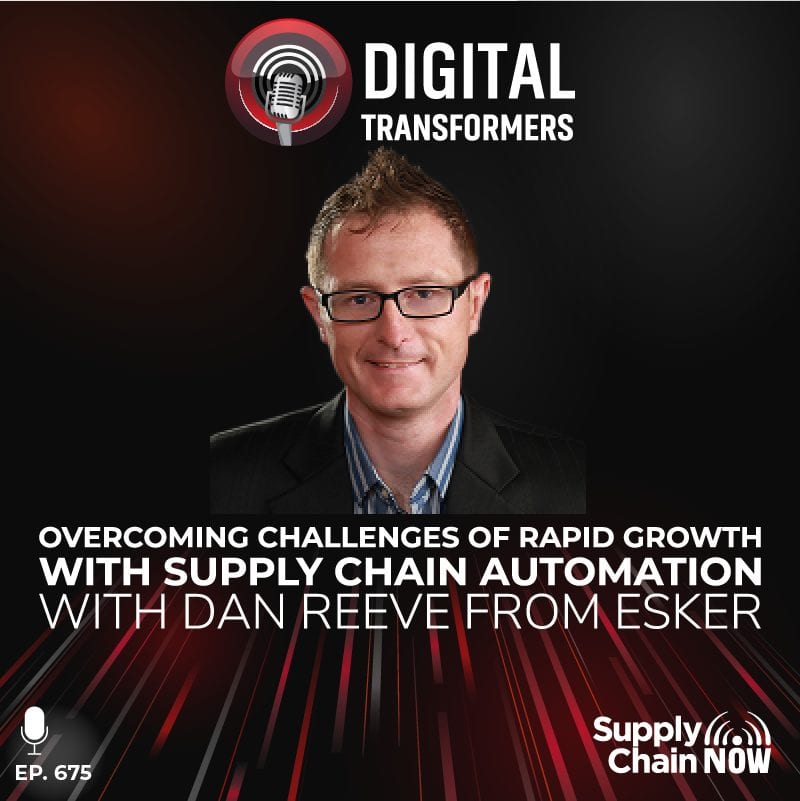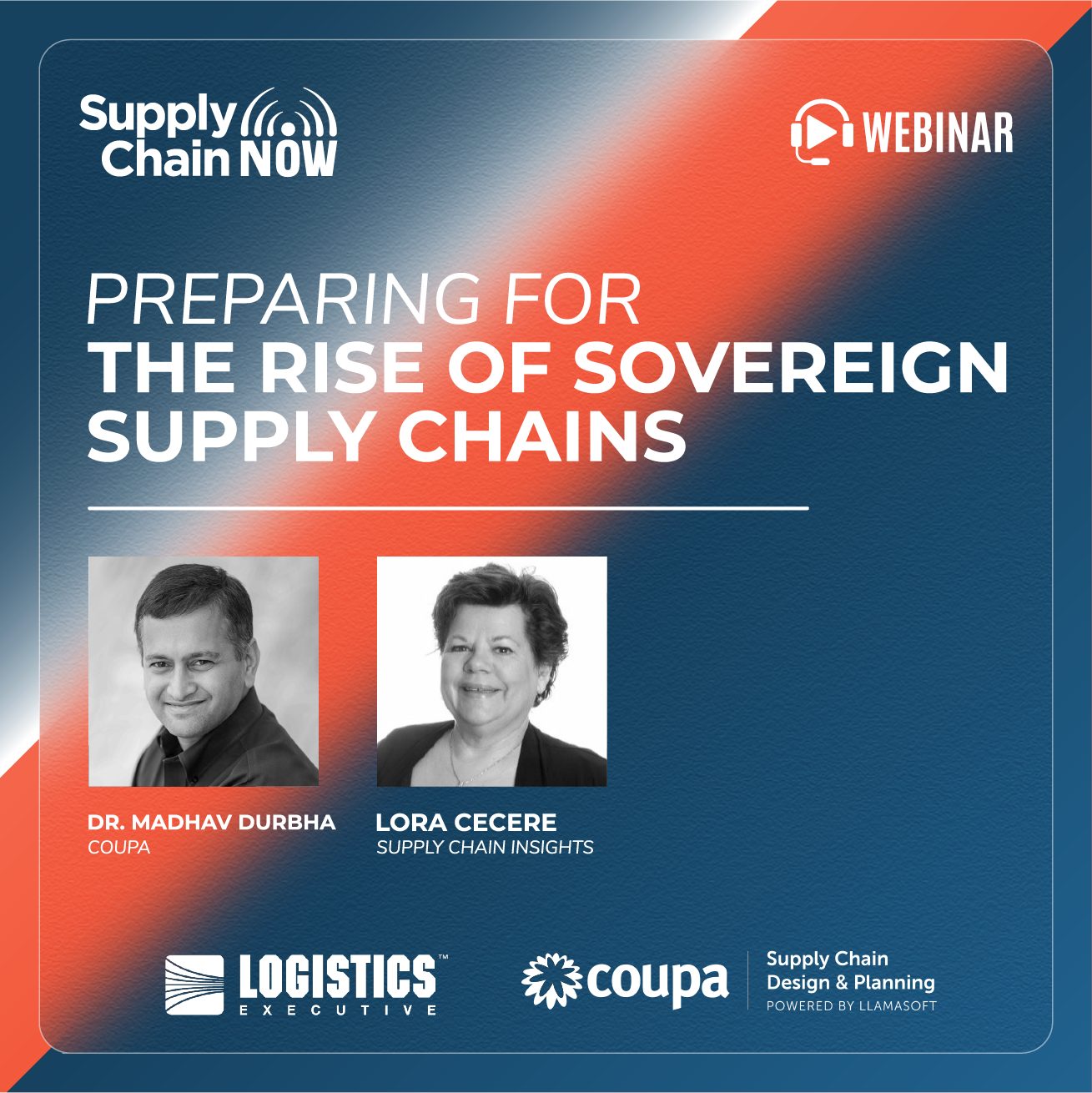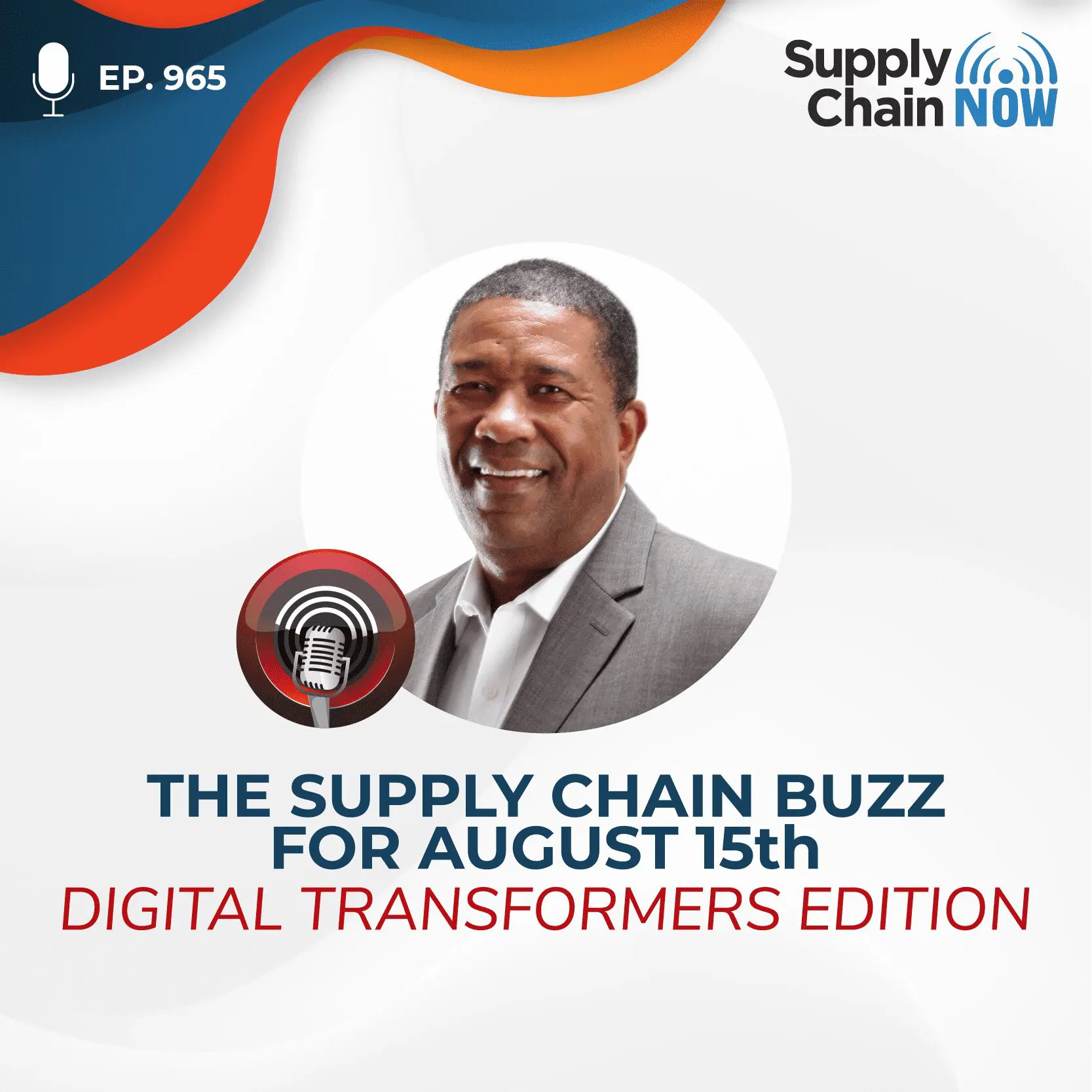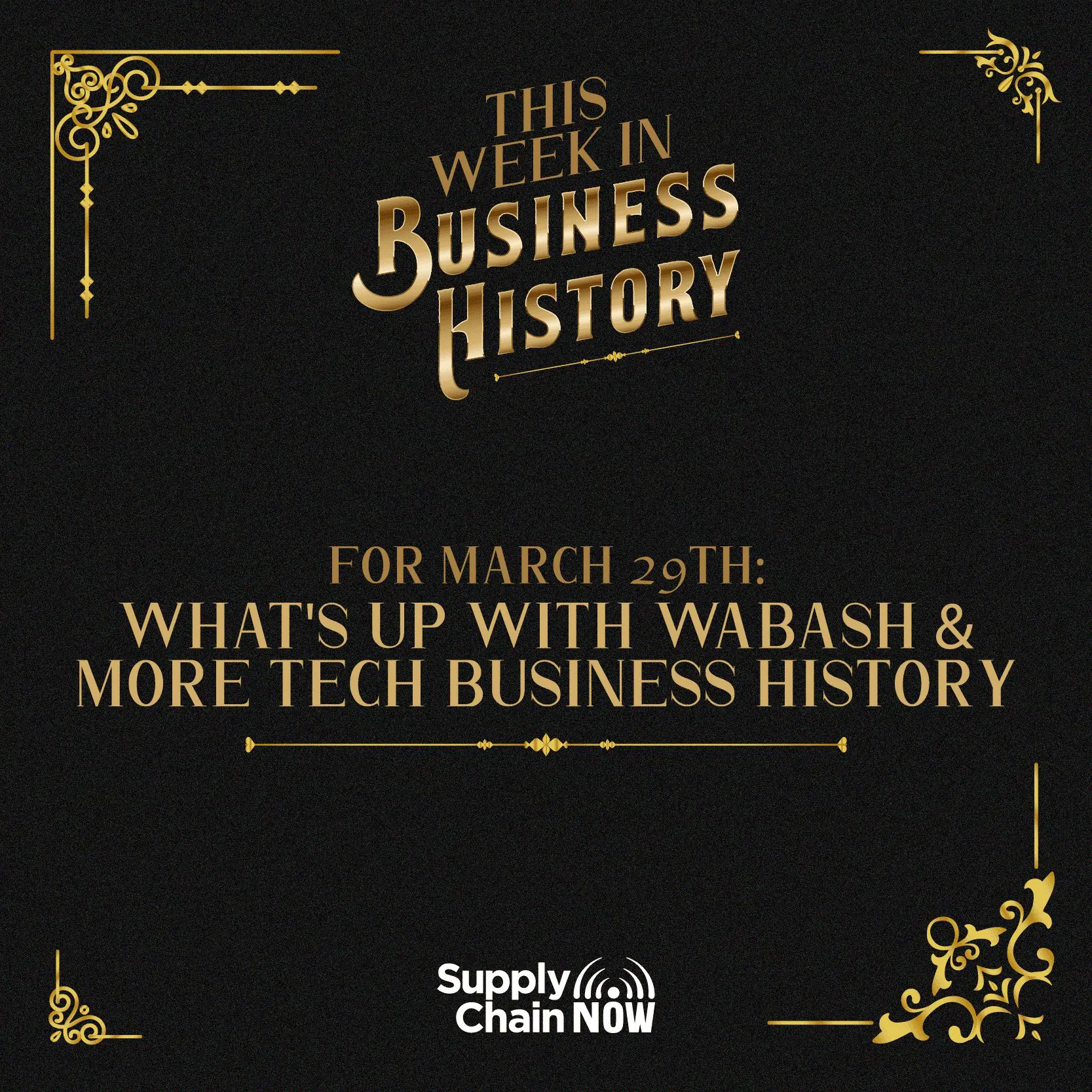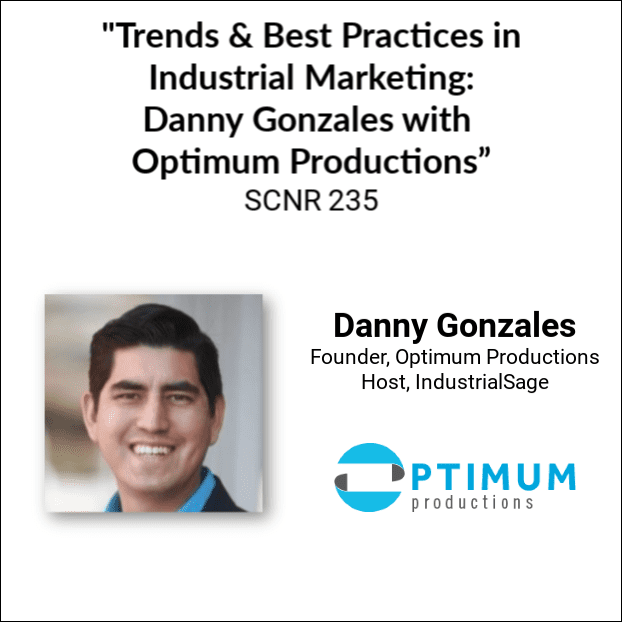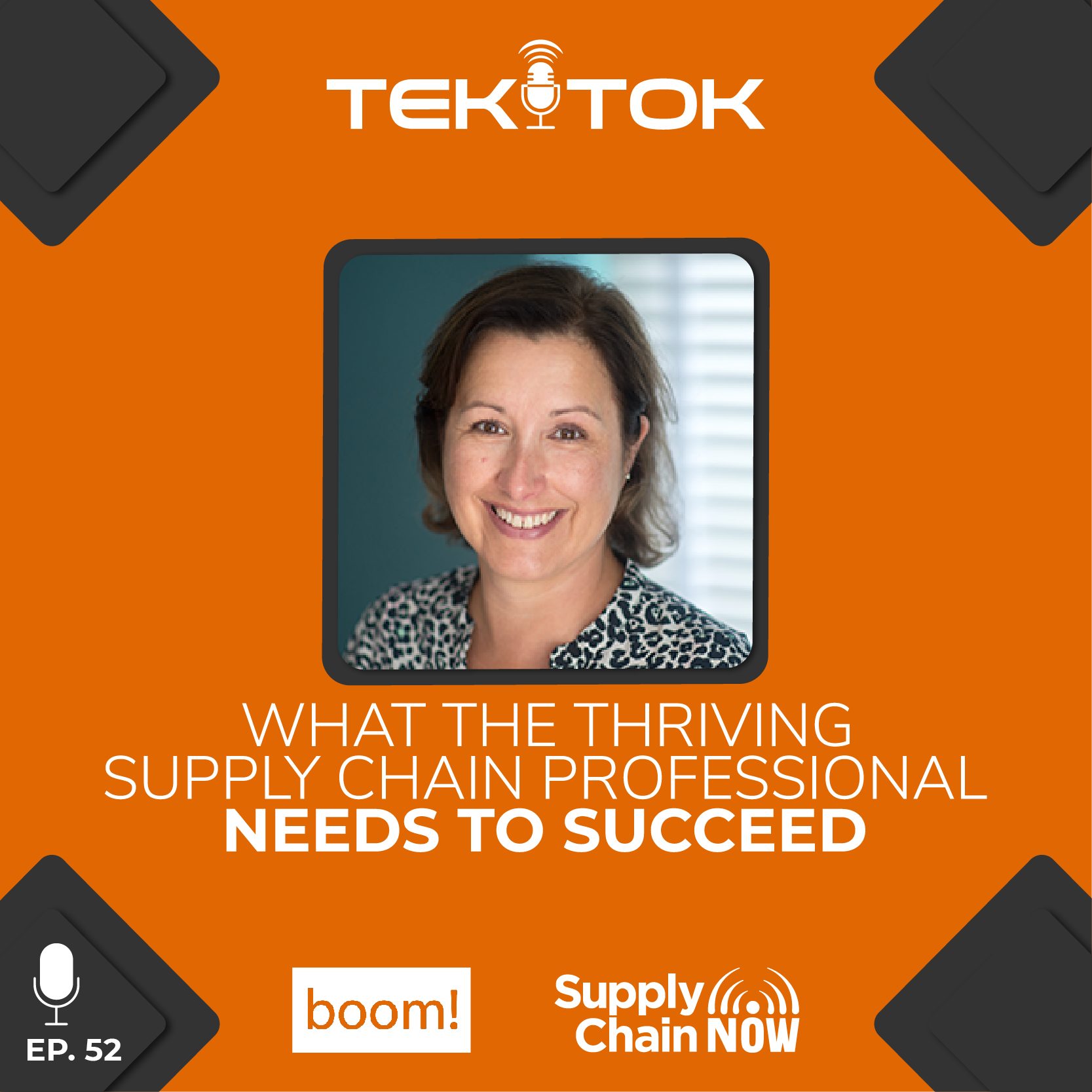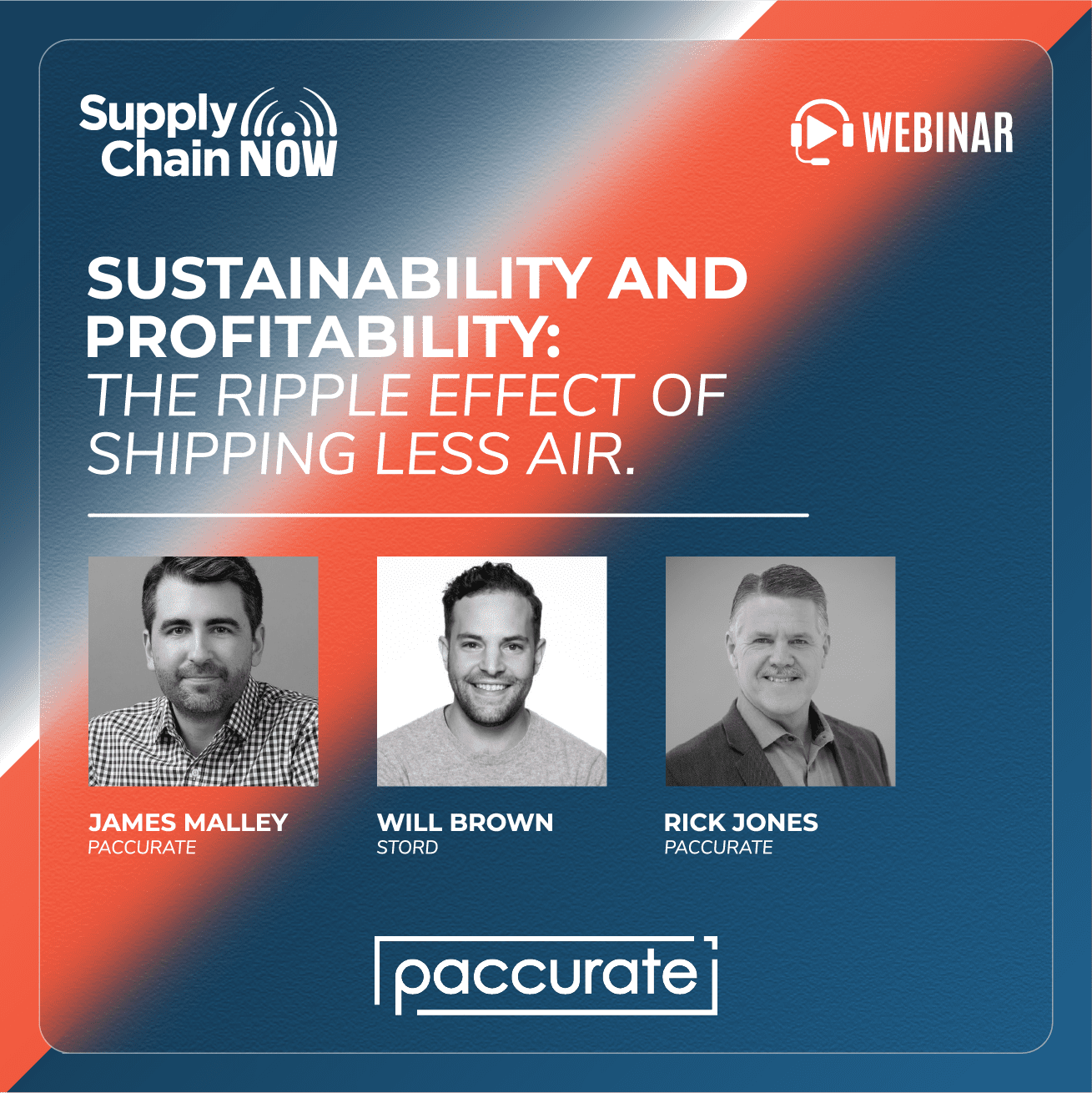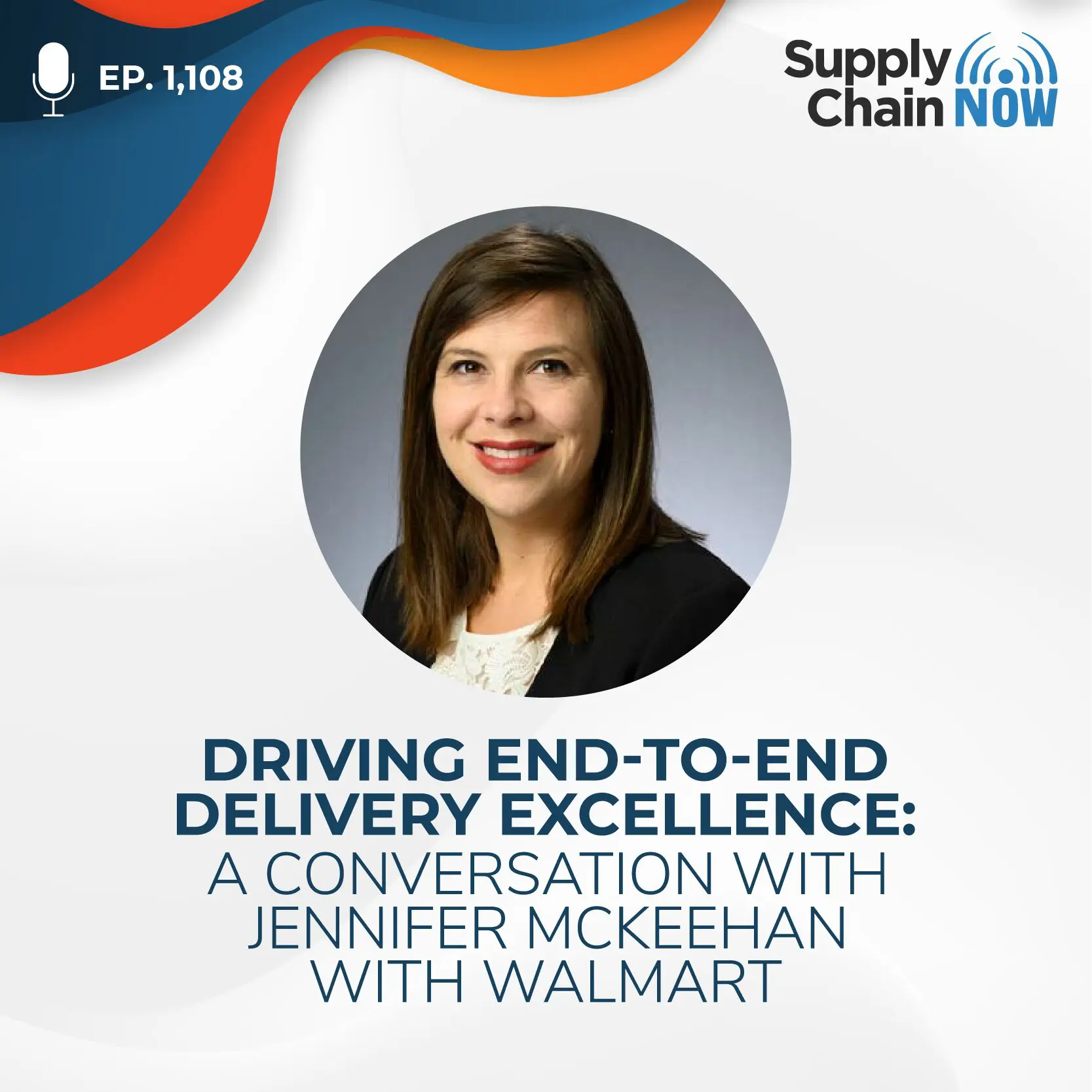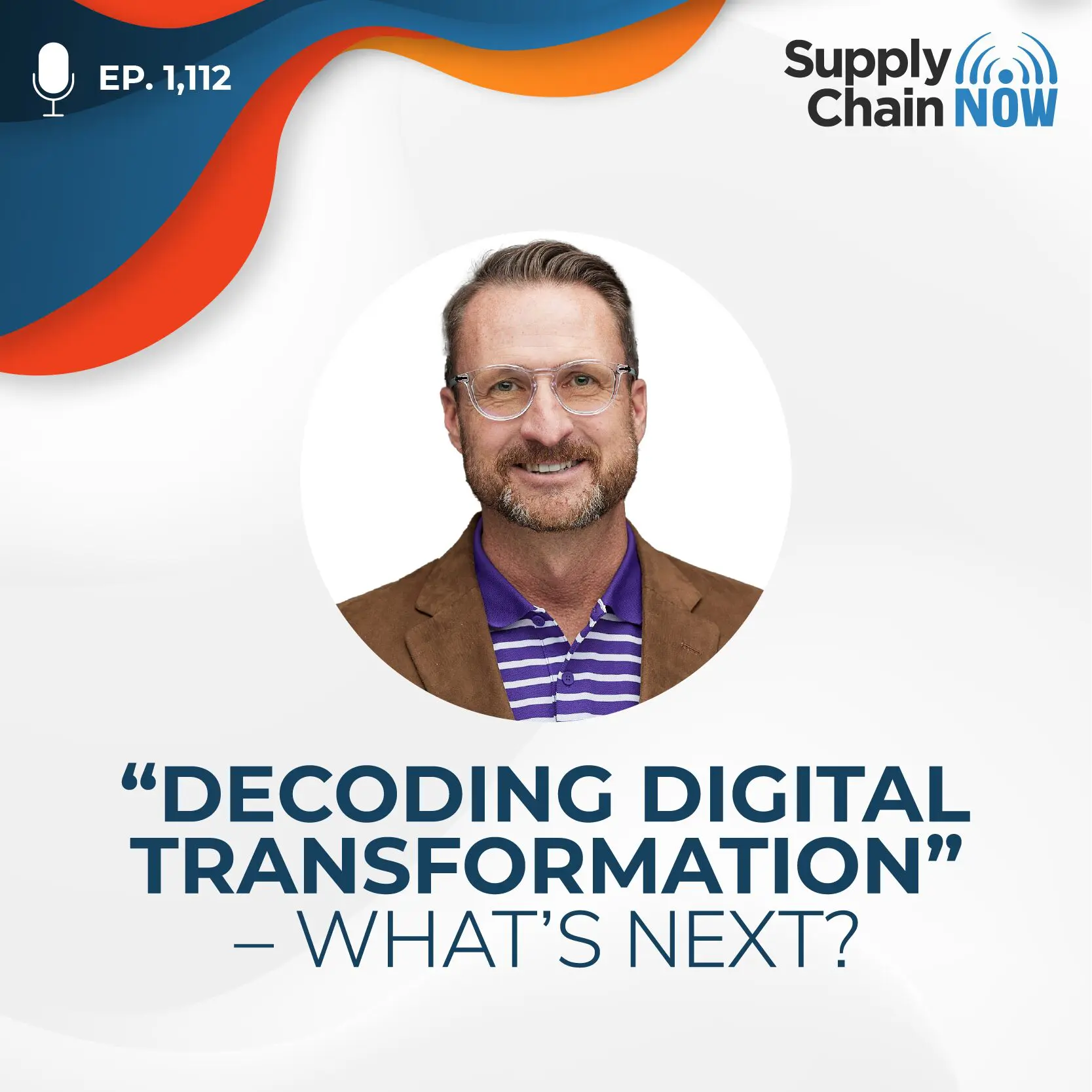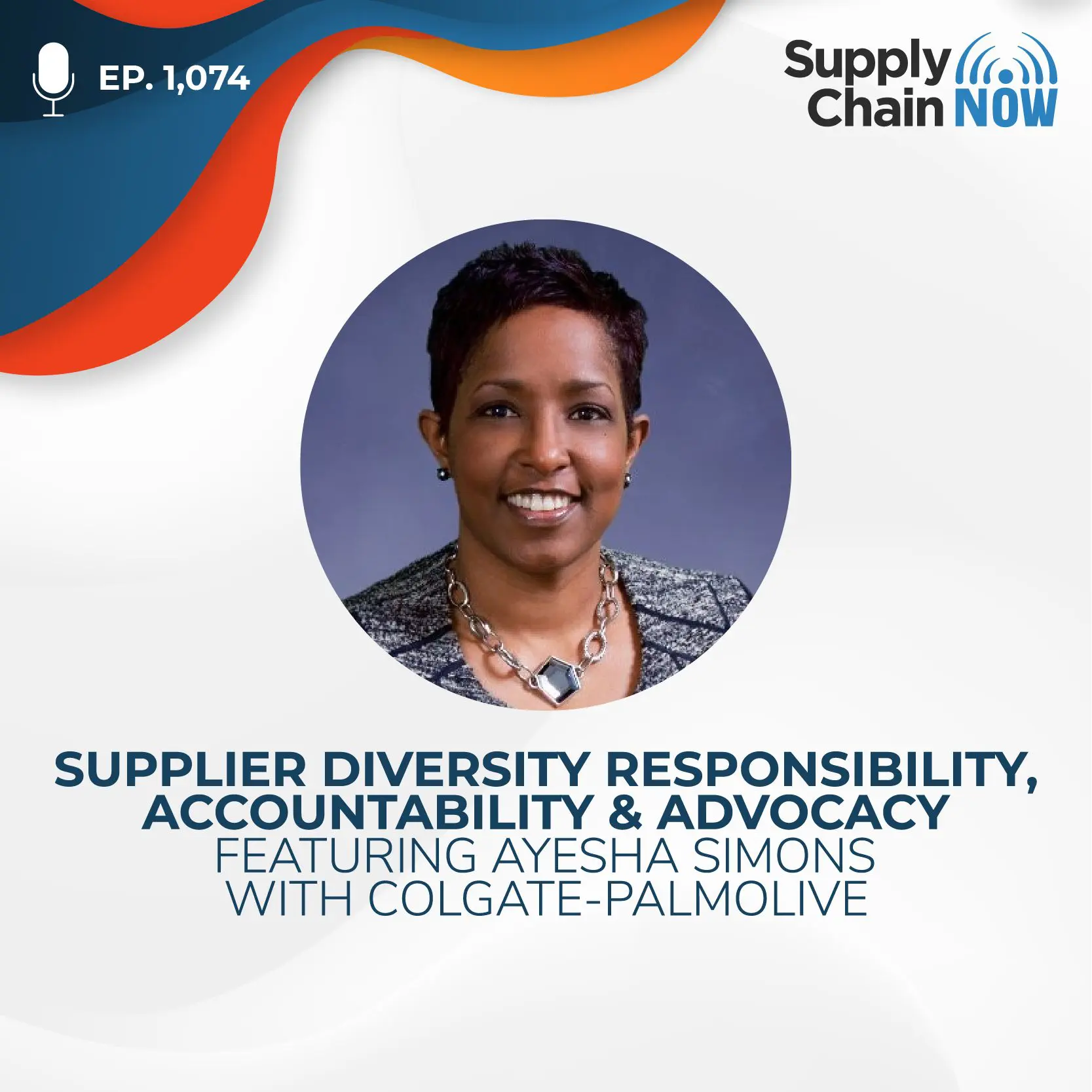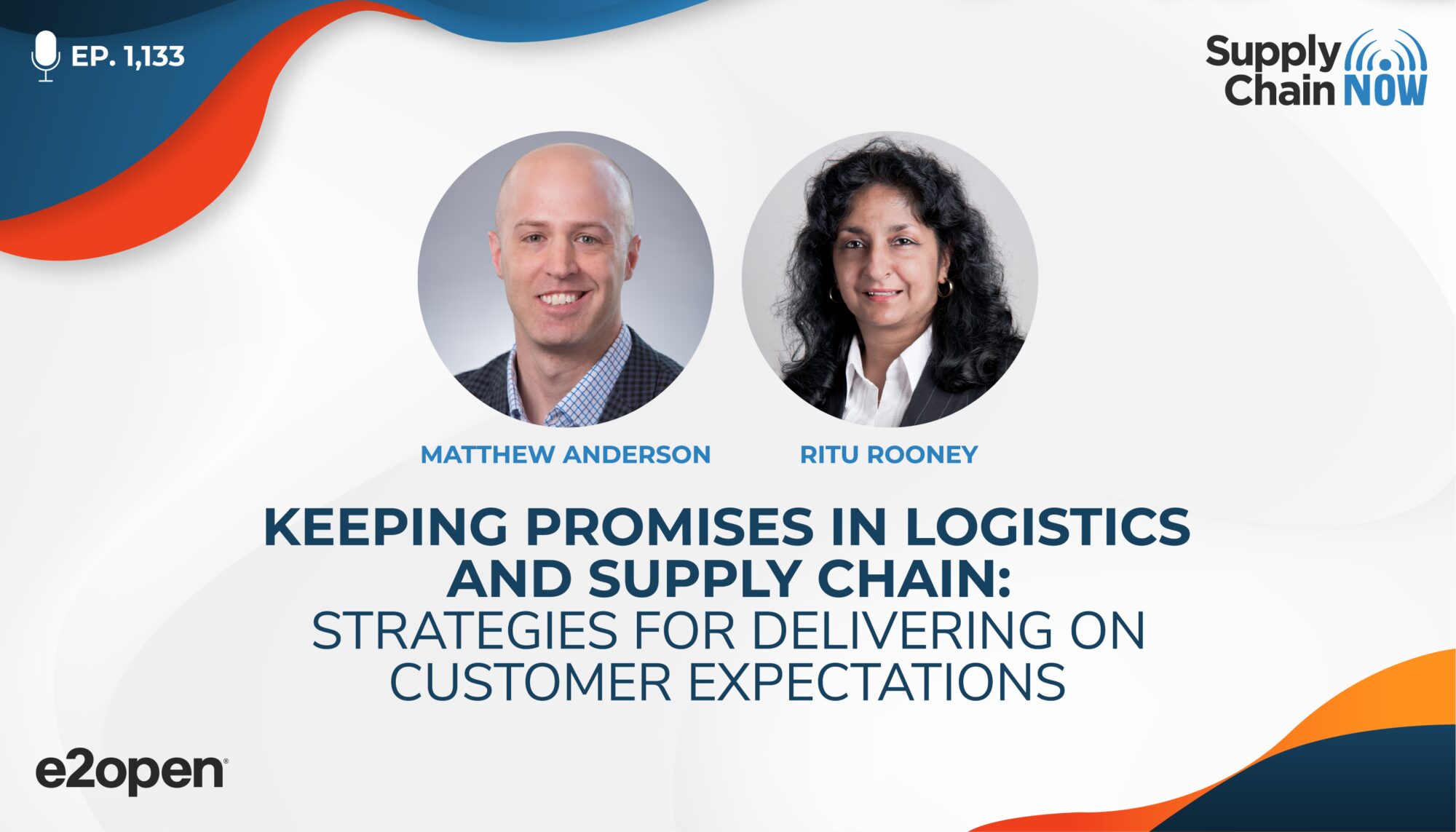
Promises need to lead to actions. They need to be operationalized into something tangible, something measurable, and something that drives accountability.
- Matt Anderson, Vice President of Logistics as a Service (LaaS), e2open
Episode Summary
Many promises are made in logistics and supply chain every day, from shippers and freight forwarders, to customers and their stakeholders. As everyone has experienced over the last few years, making those promises is much easier than keeping them, with steep operational and financial consequences.
E2open Director of Product Management Ritu Rooney has over 30 years of experience in the supply chain software industry and Matt Anderson, their Vice President of Logistics as a Service (LaaS), has been with the company for 12 years. They have both seen promises made and promises kept – as well as promises broken.
In this episode, Ritu and Matt join host Scott Luton to talk about all of those transportation ‘promises, promises’ being made:
• How shippers and freight forwarders are leveraging technology and professional services to optimize transportation activities across modes and regions
• The types of promises shippers and freight forwarders make to their customers
• 4 tips that will help shippers deliver on the promises they make to their customers
Episode Transcript
Intro/Outro (00:03):
Welcome to Supply Chain Now, the voice of global supply chain. Supply Chain Now focuses on the best in the business for our worldwide audience, the people, the technologies, the best practices, and today’s critical issues, the challenges and opportunities. Stay tuned to hear from those making global business happen right here on Supply Chain Now.
Scott Luton (00:31):
Hey, good morning, good afternoon, good evening, and wherever you are. Scott Luton here with you on Supply Chain Now. Welcome to today’s show. Hey, we’ve got two wonderful guests here with us today. As we dive into a discussion focused on ways, we can help shippers and freight forwarders improve visibility, ease and efficiencies, and reduce transportation spend. And of course, all of that, a lot of times we will result in better customer service, right? So, stay tuned as we dive into these topics and a whole lot more with a couple of guests that bring a truckload of experience and expertise to the table.
I want to introduce our featured guests here today. Join me in welcoming first up Ritu Rooney, director of product management with e2open. Ritu, how you doing?
Ritu Rooney (01:11):
I’m doing great. Thanks.
Scott Luton (01:13):
It’s so nice to meet you here today. And you brought a colleague, Matt Anderson, vice president logistics as a service with e2open. Matt, how you doing?
Matt Anderson (01:21):
Doing fantastic this morning. Appreciate you having me on.
Scott Luton (01:22):
Absolutely. All right. So, Ritu and Matt, I want to get to know both of you all a little bit better, and I’ll start with Ritu.
So, Ritu, you are based in Liverpool, and you are a big fan of the Liverpool Football Club. I’m assuming you go to those games and all, Ritu? I heard there’s — those are big affairs.
Ritu Rooney (01:39):
Yes, big affairs, and always great atmosphere there and fields. Always brilliant.
Scott Luton (01:43):
Well, I look forward to taking one in when we’ll have to share a beer and a football game in the future down the road a little bit. But hey, for our music lovers that are listening in, man, there’s a lot of them across the — our global listening audience. Tell us about the cool site that you live near, Ritu.
Ritu Rooney (02:01):
Yes, I’m really lucky, actually, living in Liverpool, home of the Beatles. So, I live in a little village outside the city, and it’s called Walton Village. We’re really lucky here because we have a lot of history of the Beatles here. It’s where John Lennon and Paul McCartney first met way back in time, I think it was 1957 or something. And they met at the local church fate here, and the rest is definitely history.
I’m lucky enough to live right directly opposite John Lennon’s childhood home. So, it’s preserved as a national trust and it’s kept as it was in the 1950s. So, fantastic to look around. You’re welcome to come and have a look.
Scott Luton (02:44):
We’re going to do it. Now I also understand you’re going to be singing your favorite Beatles song later in the show today. Is that right, Ritu?
Ritu Rooney (02:51):
I wouldn’t dare.
Scott Luton (02:54):
Well, great to have you here. Thanks so much for sharing. Really cool.
And switching gears. So, Matt, you’re from the Upper Peninsula of the state of Michigan. You played sports for the Grand Valley State Lakers, both track and cross country. So, what is one thing that most folks don’t know about competitive track and cross country, especially at the collegiate level?
Matt Anderson (03:16):
Yes. So, if you think about college sports, there’s typically some pretty large competitive gaps between the divisions within, you know, collegiate athletics, you know, division one, two, three. And it’s, you think of the major sports, you know, a division one football team playing against division two football team. I mean, that’s not much of a competition typically there.
It’s a little different with competitive running track and cross country. There’s not a large gap from a competitive perspective. So, you know, division two teams can compete with division one. You know, back when I was running at Granite Valley, we, you know, competed heavily with Michigan State and Michigan. And frankly, one of the better teams in the state of Michigan at the time was a division three school, Calvin College, in the Grand Rapids area. So, it’s a very tight-knit, new community. And, you know, there’s not that competitive, you know, step that you’d see in other sports.
Scott Luton (04:08):
So, as a follow up, Matt, beyond business, which I — I’m sure there’s a competitive fire that plays in there. But — so as a — as an athlete, what do you do now? Do you still play sports?
Matt Anderson (04:20):
I still remain active. I still like to run occasionally. You know, I think my body’s worn down a little faster than maybe, typical. You know, I’m told to have the back of a 50-year-old and so that — those miles, you know, take their toll. But, you know, still — once you kind of get into that space, it feels weird not to be active.
Scott Luton (4:41):
Right. I bet.
Matt Anderson (4:41):
So, it’s a big part of my life to stay active and stay fit. And, you know, it’s just going to evolve over time about what I do to scratch that itch.
Scott Luton (04:51):
All right. So, after today’s show, I’m going to have to get some tips from you about staying active and fit and being in good shape. So, we’ll save that conversation for later. But thanks for being here, Matt.
Scott Luton (5:01):
All right. So, Matt and Ritu, we got a lot to get into here today. And I want to start by — I think it’s important to level set on both of your professional journeys, right, so folks’ kind of get a sense of who they’re hearing from.
Scott Luton (5:13):
So, Ritu, you’ve spent over 30 years in the supply chain software industry. I’m completely breaking the rule. We don’t go over 20 years here at Supply Chain Now, but I’ve broken that rule in these conversations. Oh, the stories, I bet you could tell. Hey, tell us about, what e2open does in a nutshell, and then of course your role with the organization.
Ritu Rooney (05:33):
OK. Well, e2open is focused on delivering a comprehensive platform for end-to-end global supply chain. So, it’s a fully connected network and puts together solutions that are suitable for shippers, freight boarders, logistic service providers. All focused on the software, but all focused on delivering solutions that drive customer value.
Scott Luton (05:59):
And everyone is chasing after more and more and more value these days in these disruptive times. So, your role with the organization, Ritu, you’re helping customers realize that value? I bet.
Ritu Rooney (06:10):
Yes, indeed. As director of product management, I’m responsible for the TMS solutions, focused on the freight boarding marketplace at the moment, and making sure that we deliver solutions that fit the market, handle the market changes which, as you know, are plenty at the moment and have been over the last few years. We’re evolving, always technology changing and making sure that we keep up to date and innovate as we go through and deliver value for our customers.
Ritu Rooney (6:42):
It’s important that we make sure that the software is high quality and also make sure it’s easy to implement. So, these are the things that as product management we have to focus on as well as functionality that needs to be in the solutions.
Scott Luton (06:55):
Yes. Plenty of changes. Good and plenty. Remember that terrible candy we all got from the movie theaters back in the day?
Scott Luton (7:03):
All right. So, I want to switch gears here. So, Matt, your journey, you’ve spent the last 12 years here at e2open and a variety of operational and leadership roles. Hey, tell us about your current role as vice president of logistics as a service.
Matt Anderson (07:16):
Yes. So, I have responsibility for the LAAS group logistics as a service. We call it LAAS, it’s kind of our branded name for managed transportation services. So, we offer road and rail managed services along with managed procurement services and analytical services. So, everything from execution to helping our customers procure, you know, freights through RFPs and get the most out of the data and the technology. Our, you know, our homegrown TMS.
Matt Anderson (7:45):
You know, our combined teams manage, you know, over 3 billion in annual transportation spend on our platform. And we also, you know, as I mentioned, provide that resource support from administration, TMS administration, analytics and procurement perspective. You know, we leverage our TMS in a very interesting way compared to our competitors. It’s a shipper focused TMS and, you know, the last group really started 17 years ago when, you know, shippers came to us and say, hey, we love the technology, but we’re not going to have transportation management be a core competency for our business. We want you to run it for us. So that’s where LAAS started.
Scott Luton (08:21):
And just for our listeners benefit, you know, we love our acronyms, across global supply chain, LAAS, L-A-A-S is what Matt is referring to. All right, so we’re going to shift gears, Ritu and Matt. A big theme for today’s discussion is promises, promises, promises.
Scott Luton (8:39):
So, as I shared pre-ship [phonetic], when I was putting this conversation together, the song that instantly flooded my brain was this 1983 hit by Naked Eyes. Some of our audience may remember it because there’s this line that goes, you made me promises, promises. All right? So, I’m not going to be signed to any recording contract anytime soon, but I know for a certain portion of our audience, they know exactly the song I’m talking about.
Scott Luton (9:05):
So, companies everywhere, Matt and Ritu, especially shippers or freight forwarders as we’re talking about it. They’re looking to innovative technology and services to automate and optimize transportation activities across all modes and regions. They’re looking to streamline their supply chain logistics processes to help them keep those promises they’re making to customers. That’s one of the most critical things we got to do is keep those promises because it protects the credibility and who we are as organizations, right? It’s a big part of the culture.
Scott Luton (9:37):
So, on level — I want to continue kind of level setting with both of you all. What are the types of promises shippers and freight forwarders are making to their customers? And Matt, we’ll start with you, especially from a shipper’s perspective first.
Matt Anderson (09:49):
Yes. So, I guess, you know, the level set a little bit on, kind of, how to think about promises that, you know, shippers make to their customers. You know, many are high level focused, you know, sometimes on execution or really some sort of end result, some sort of metric. But they can also be pretty subjective, more based on, you know, really desire for a process. So, that can really lead to a situation where you really need to better understand the client’s and shippers wants and needs and how those are — can be different.
Matt Anderson (10:20):
So, as a provider of software and services, it is critically important that you separate the wants and needs. Ensure that you deliver on the needs because that’s, in the end, you know, how you drive value for shipper clients. It’s also important to understand and ensure that these goals that come from these promises lead to actions within the shipper’s organization.
Matt Anderson (10:40):
A lot of cross-functional activity comes from those goals. And there’s many stakeholder groups within an organization that will have influence on delivering that promise. Absolutely, there’s a lot of interconnected activities that, you know, translate into how you deliver on promises to customers and, you know, supply chain technology in a connected network and services to complement that can, you know, really help an organization deliver on those.
Matt Anderson (11:04):
So, a few examples, let me — I’ll dig into on, you know, shipper focused goals and promises to their customers. You know, the big one out there right now is OTIF, On Time In Full. And that’s more the former example I use, more of a desired end result and it’s typically pretty black and white, it’s a very defined goal. I also say it’s more of a dictated promise that, you know, shippers make to their customers. They don’t really have a say in a lot of that and that can lead to some large financial implications if those goals aren’t met.
Matt Anderson (11:34):
And it’s been, you know, pretty challenging the last few years to deliver on those goals because this, you know, the Covid situation and how supply chains were impacted. You know, fluctuating customer demand and reliability of upstream suppliers and raw materials has really made it challenging to continue to meet those goals. And while, you know, some end customers have been a little lax on the requirements recently because they understand some of the transit, you know, the challenges that shippers have had, you know, they’re back to really having those high expectations now. And so, it’s more important than ever, because you know, shippers can deliver on those goals.
Matt Anderson (12:10):
The other large goal we see out there, which is more process focused is visibility. And it’s one of those more subjective promises because visibility can mean different things to different people, you know, from exception management, you know, just, just tell me when something’s going to fail to, I want to know where a truck is or a shipment is at any point in time. That promise more based on a process than an end result.
Matt Anderson (12:35):
And what really can make this difficult to manage from a shipper perspective is that it can sometimes be a moving target just based on what’s happening. And it’s going to require kind of firm alignment with, you know, between the shipper and end customer on really the who, what, when, and why and how to deliver on that.
Scott Luton (12:53):
Matt, I appreciate that. And you’re right, on time in full, that has become all — a constant mantra these days. Every day, every hour.
Scott Luton (13:02):
Ritu, I want to add in — get you to add in the freight forwarders perspective here. What are — what kind of promises are they making?
Ritu Rooney (13:08):
Yes. Well, I think they’re similar themes to what Matt has just said. The promises across this whole supply chain follow do — do follow similar themes. But I think from a perspective of delivering, it’s not just about on time in full. The freight forwarders, I’m more concerned about delivering responsibly and carefully for their customers. So, they are concerned about delivering environmentally sound ways of the cargo reaching its destination, that there’s such a drive now for understanding more about the carbon footprint and making sure that that’s included when you’re using software systems to get you the information you need at your fingertips to make those valuable judgements.
Ritu Rooney (13:54):
A lot of our freight forwarders customers are actually making that a prerequisite, especially now in Europe where there’s government grants available for that kind of thing as well. They have a focus on that and they want the systems to provide the options not only to see what the fastest way of getting the cargo there is or the cheapest way, but also the greenest way of getting something there. So, facilities like a dynamic rooting option within a solution can actually help the user can see exactly what’s — which way they can deliver that cargo to suit what’s been promised to the customer.
Ritu Rooney (14:29):
Matt was also talking about visibility. And one of the things that has come up for the freight forwarders is delivering self-service visibility to their customers. So, they want us to help to deliver the option for their customers to be able to see for themselves where things are up to. And as Matt also said, provide the exception management. So, not only do they want to see what they need to do something about, whether they want to redirect cargo or make some proactive decisions about how to reroute something or change mode about — of a shipment that they want to deliver.
Ritu Rooney (15:08):
They can actually now go in and pin their favorite shipments or pin their most important customer shipments to actually then follow through on the promises that they’ve made. Whether it’s even outside of their normal working hours, people are always focused on making sure that the promises are met. So, they want access on their mobile phones and they want to be able to follow up at any time of day or night.
Scott Luton (15:31):
I love that. And one thing, one of the themes I heard in your response here, Ritu, is, you know, options, options, options are a wonderful thing as we’re looking to meet these demanding promises and commitments we’ve made.
Scott Luton (15:42):
All right. So, I want to keep going here. So, Matt, coming back to you. In your perspective and expertise, what should shippers be doing now to better meet these promises with their customers?
Matt Anderson (15:54):
Yes. I mean, these promises I mentioned need to lead to actions. So, you know, operationalize the promise into, you know, something tangible, something measurable, and something that can, you know, warrants accountability, ambiguity around what the promise is and how it will be measured is just — is the recipe for failure and it’s going to lead to dissatisfaction. So, it needs to be, you know, boiled down to something that can be measured and tracked, you know. As I will say, what — what’s measured as managed and what’s managed as measured, same thing applies here.
Matt Anderson (16:22):
I think taking a look at upstream supply chain goals as well. All the way down the line is — or, you know, are there conflict in those goals. And we — I’ve seen from time to time that, you know, certain particular area of the supply chains are particular part of the execution of that workflow has a diff different goal that may conflict farther down the chain, down the stream.
Matt Anderson (16:44):
And that can cause some suboptimal results. You know, a perfect example I’ve seen in my time is a warehouse staff that was held to, you know, detention. You know, it’s a common metric to — from a shipping perspective. We want to reduce detention, reduced, you know, cost there. But they were releasing loads half full. So, there was, you know, just waste that was created from that.
Matt Anderson (17:07):
So, you know, understanding where these goals play off each other and where there could be conflict is important. You know, we had a pretty disruptive supply chain event with the pandemic. You know, we’re, you know, customer, consumer habits and buying habits change and how inventory has been managed. So, you know, evaluating the weak points that existed and what didn’t fare well during the pandemic is an important thing right now.
Matt Anderson (17:32):
Especially as things have quieted down and a lot of supply chain leaders are maybe taking a breath, taking deep breaths and saying, well, that that was rough the last couple years. I’m glad that’s over. Now, is the time to double down and understand where were some of those things that were breaking. Do a root cause analysis. Is the root cause in the same area of where the impact is showing up? I think typically we see a lot of the inefficiencies upstream and supply chain activities roll down and show themselves in transportation and it may not be a transportation issue.
Matt Anderson (18:01):
So, needing to understand where the issue lies and work backwards to find the root cause is pretty important. And as I mentioned earlier, you know, different functional groups, different stakeholder groups are going to play an important part in delivering on these promises. So, to understand — those groups to understand their part of the process and how they can be measured and so overall success can be measured is pretty important.
Matt Anderson (18:25):
And really all this kind of flows into, you know, developing a longer term, go forward execution strategy to not only handle the next disruption well, but well to keep those promises when the next disruption happens. It’s not a matter of ifs, it’s when.
Scott Luton (18:40):
That’s right. Curveballs keep coming. That’s — it goes hand in hand to global supply chain. It’s what we do, right? It’s tackle and hit those curveballs out of the park. And I want to go back to something you shared on the front of your response. And Ritu, I’m coming to you next and get your take on his comments there because he shared a lot.
Scott Luton (18:57):
But the conflicting goals, that is such a great call out, Matt, more than ever, you know, we’re never going back to pre-pandemic. It’s long gone. So, for folks, for a small percentage out there that are hoping and praying and you know that now that we’re in the post-pandemic, it’s going to be the good old days. Folks, that’s not going to happen. It’s not going to happen.
Scott Luton (19:19):
But how we can gain that golden alignment across the organization, upstream and downstream, that’s how we can really deliver faster, we can fuel innovation, and we can really take hold of the art of the possible in a headlock and do more and really for that matter, transform the industry. So, Matt, what a great call out, because sometimes we put our own constraints on that as we create goals and make conflict across the enterprise.
Scott Luton (19:43):
Ritu, Matt shared a lot there. What couple of your comments there. What comes to your mind?
Ritu Rooney (19:48):
Actually, you both shared a lot of good things there. And I think it’s one of those things where you look across the whole supply chain and you want to make sure that the promises that are being made are kept across the whole end to end chain. One of the key areas there is a promise that the freight forwarders make to make sure that they’re following all the compliance rules that are there and also ever changing today.
Ritu Rooney (20:11):
So, an offering that the freight forwarders often make is to deliver custom solutions. So, a global customs offering is essential when trying to make a connected network across the whole supply chain. I think it’s valuable that as a service that can be provided, but it means that that promise has to be kept. And so, the more streamlined that the freight forwarders can deliver that service, the better it is for everybody in the chain.
Scott Luton (20:37):
Well said, Ritu. And you know, it is so — you know, we’re talking about all these various promises and the expectations they create. And it is so critical that we protect our credibility and our brands and who we are as organizations and keep those promises, as you pointed out, Ritu. I know that goes without saying, but man, in this age that we’re living in, and as fast as we’re moving and all the disruption and uncertainty, you know, at the core is keeping those promises we’re making.
Scott Luton (21:07):
All right. So, Matt, we’re going to pick your brain more here. You’ve got lots — you all both have lots of expertise, but in particular this next segment. Matt, I will get you to share four tips that will help shippers deliver and keep these promises they’re making to customers. What would those four tips be? And let’s start — let’s take this one by one. We’ll start with the first one, Matt.
Matt Anderson (21:27):
Yes. So, I think, you know, technology is not just a nice to have anymore. It’s kind of critical in terms of, you know, managing your supply chain and managing these promises. So, fully utilizing, you know, proven transportation management system on a connected platform that kind of works with in conjunction with other, you know, upstream technologies is really, you know, I think critical to optimize your shipments, your costs, your service, your efficiency. And is the foundation for how you can deliver on goals and promises to your customers.
Scott Luton (21:59):
Yes. And you know, one of the thoughts comes to mind there is, you know, the islands of excellence have long been a — been part of industry, right? You know, for a long time, part of the operational side. But what we don’t want to do, Matt, to your point, is create islands of excellence when it comes to technology and make sure all the platforms that we’re using are well connected and play nice with each other in the sandbox is critical.
Scott Luton (22:21):
Ritu, any quick comment there on that first one?
Ritu Rooney (22:25):
Yes, I do think that’s essential. I think it’s, like, the whole way that things connect together is one of the focuses of are each open. And making sure that you have networks and partners that all combined to deliver that whole supply chain end to end is really vital, more vital than it ever has been in the past.
Scott Luton (22:46):
That’s right. All right. So, Matt, first one was technology no longer a nice to have, but a connected technology is critical. What’s number two?
Matt Anderson (22:54):
I mean, the — you know, how do you leverage that that technology is also critical. And the way to leverage technology is through supply chain talent and that is, you know, sometimes a challenge to get and keep. And so, to ensure that you’re getting the most out of the TMS, most out of the technology you’re using and the rich data context they can provide. You know, consider an outsource solution, consider managed transportation services.
Matt Anderson (23:19):
Now, that’s not for everybody. We need to, you know, evaluate your own organization, understand it. Am I going to build this expertise as a core competency or not? And if not, that’s OK. That’s why there’s services like logistics of the service out there to help with that. We can help, you know, translate promises into specific goals and actions and help drive the upstream change management required to get cross-functional alignment on how these — parts of these promises and goals kind of fall together. And so, that’s probably number two, you know, critical.
Scott Luton (23:51):
Yes. And I love how the beginning of your response there, it comes back to talent. All right. Technology opens up so many doors for talent across a really global business for that matter. All right. So, number three, Matt, let’s keep driving.
Matt Anderson (24:03):
So, we talked about the technology and the talent. And now it’s, you know, how you leverage those effectively. It’s, again, I keep coming back to cross functional upstream business processes and, you know, taking a modernized approach to that. So, it’s breaking down the silos, understanding the interconnected nature of how everything works together.
Matt Anderson (24:22):
And like I said, using this current, you know, transportation or freight market down cycle to prepare for that next disruption. Like I said, people are coming out of a really tough time and maybe saying now that’s time to really clamp down on the budgets and maybe sub-optimized short term because I’m being challenged. But now’s the time, I wouldn’t say to, you know, go crazy from a budget perspective, but you know, spend wisely and plan wisely because like I said, the next disruption’s right around the corner.
Scott Luton (24:52):
Yes. Well said, Matt.
Scott Luton (24:53):
Ritu, I love using the tougher times to get ready for the better times ahead. And, Matt, on the front end of his response of number three in terms of tips for shippers, how they can better meet these promises. Silo busting, one of our favorite phrases around here. Breaking down those silos. Ritu, your quick thoughts there.
Ritu Rooney (25:15):
Yes, really important. That is one of the key areas, I think. that everybody is trying to drive for. One of the ways in which you can do that is through the partner network. I think that’s a really important thing. Making sure that the systems that are behind the scenes enable those partners to connect seamlessly so that the customers get the best value without having to go to multiple places. I think that’s much more important now than it ever has been. And that’s what people are investing in. They’re investing in the underlying technology that allows you to do that without having to take care of anything in the background.
Scott Luton (25:55):
Well said, Ritu. And, you know, digital twins, of course, we’ve been talking and acting and implementing on that for years now. But barriers and silos also have digital twins, you know, physical barriers, digital barriers, and more. You got to take all of that into consideration as we’re looking for ways to help our team and our customers succeed.
Scott Luton (26:14):
All right. So, we have tackled quite a bit here. Technology, talent, breaking down silos, Matt, and using the tougher times to get to better. Get better for the good times ahead. What’s number four?
Matt Anderson (26:26):
Yes, I’d say as we look at the first three, you know, take a step back and think about it is pretty daunting about all the actions and things that could come out of implementing a technology and leveraging a team and, you know, cross-functional later [phonetic]. There’s a lot to do here. And then that’s true. There’s an awful lot you could be doing.
Matt Anderson (26:44):
So, it’s important to benchmark where you’re at from a performance perspective to understand what you should be working on. It’s really hard to understand as you’re looking at all these metrics, all these KPIs, all these goals to say, OK, I need to get better. But where — where is the — where should I be spending my time? What’s the biggest bang for my buck in terms of my, either my budget or my talent and my time? You can do that with, you know, benchmarking your performance against market trends. So, that’s this important context to help focus your activity.
Scott Luton (27:15):
Man, prioritization. What’s old is new and absolutely critical, again. All right. Appreciate both of you all’s perspective as we walk through those four tips on ways that shippers can help shippers deliver on their promises to their customers. But wait, there’s more. More promises. More promises.
Scott Luton (27:35):
Ritu, describe some of the promises that freight forwarders are making to carriers.
Ritu Rooney (27:40):
Yes, I think the — that is another angle on this as well. It’s not just the customer side of things. It’s who you are working with also, you are committed to in a lot of different ways. One example that I can think of is when you commit as a freight forwarder to a carrier for a contract, making sure that you get a certain allocation of Ts [phonetic], for example, across a trade lane.
Ritu Rooney (28:07):
Managing that commitment and making sure that you deliver on that commitment, you need help to do that because tracking that and making sure that you’re fulfilling it across your whole portfolio is a real challenge for the freight forwarders. So, if they make — if it was one or two carriers, that would be fine, but because they’re working across the whole supply chain, they have multiple carriers that they’re working with and they rely on systems to enable them to track all of those, manage the allocations against them all, and juggle the thresholds that are applicable across all of those.
Ritu Rooney (28:43):
So as the system can help you to drive where you should deliver your cargo, how you should deliver your cargo in order to meet your contractual commitments. As well as deliver the best service for the customers, it’s a definite art rather than a science, yes.
Scott Luton (29:00):
That’s right. And you mentioned a juggling act, and I’m not sure what the word juggling conveys, but in my mind, what I thought about is the most efficient, most capable juggling acts. Freight forwarders that can manage the juggling acts with folks that can deliver on the promises and grow throughout this cycle that we’re in.
Scott Luton (29:21):
All right. And of course, that juggling becomes more and more technology driven these days, for sure. Matt, let’s talk about some of the promises — well, first off, Matt, if you want to add anything to that when we talk about that freight forwarder perspective, but also let’s talk about the promises that shippers are making to carriers. Your thoughts, Matt?
Matt Anderson (29:38):
Yes. I mean, we talk a lot about technology and rightly so, but you know, there’s still a lot of relationships that are driving, you know, how successful shippers can be at managing their goals. And, you know, from a shipper promise to a carrier perspective, and I think overwhelmingly a promise they should be making if they’re not is being a good partner.
Matt Anderson (30:00):
So, are you driver friendly? Are you opening the communication lines and looking for mutual success, continuous improvement focuses on both ends? You know, if we learned anything over the past few years that, like I said, relationships are still big and both shippers and carriers rely on each other pretty heavily. And it — those relationships have been really tested the last few years, and we saw both ends of the freight cycle.
Matt Anderson (30:26):
And I think the ones that are most successful in execution and being able to meet goals to end customers are the ones that take that promise of being a good partner pretty seriously. And stick with those carriers during the, you know, good times and the bad.
Scott Luton (30:42):
Excellent comments there. And I got to just pull. I love how you mentioned drive being friendly to drivers. I mean, we can’t lose sight of our basic obligations as humans. And you know, the other thing that’s part of that overall equation you were sharing there, Matt, is as we learn, especially during the pandemic is really important to be a good customer, right?
Scott Luton (31:05):
Really important because more and more suppliers, carriers, you name it, service providers, they’re — especially those that are able to deliver on promises, they’re going to pick and choose. And they’re going to remember those bad days when the customer didn’t uphold their end of the bargaining. So, that’s a great call out, Matt.
Scott Luton (31:23):
All right. So, I want to — as we start to wrap today’s conversation, I want to talk about some of your favorite stories and experiences, anecdotes, you name it as to how e2open is helping its customers find success in these very difficult times. So, Ritu, I want to start with you. You’ve seen it, you’ve been there and done it through your time in industry. What’s been one of your favorite moments as you’ve been with the e2open team?
Ritu Rooney (31:51):
Wow. There’s a lot of great moments. So, I — maybe I’ll just share one of the more recent ones that we’ve just experienced. So, one of our key customers on the freight forwarding side has recently completed a global rollout of the solutions. We’ve — it’s always challenging when you do a global rollout because you have so many different nuances across so many different countries. And no matter what people say, that’s always a challenge. Not just from the software or tech side, but from people side, the culture side, the adoption, all kinds of things mixed in.
Ritu Rooney (32:32):
But one of the successful things that we’ve just had is a customer who has been able to roll out now even into China. We have lots of implementations in China, but this customer was facing quite a number of difficulties there with the adoption and it was really helpful for you to open to be able to provide local resources there and make software configurations there that would handle the local nuances and local specifics that have to be done when you are implementing in China, but don’t have to be done around other geographical areas.
Ritu Rooney (33:09):
What they were trying to do, this company, without naming any names, they were trying to make sure that the promises to their customers are kept no matter where they’re delivering cargo. So, the global standard that they’re trying to implement has now been facilitated by e2open. By making sure that local specifics, as well as the global standards can be adopted within the same solution. So, that’s a real success for them because they can now fulfill promises to their customers wherever they are, whatever kind of cargo they’re delivering, whatever time, whatever geography. It’s a really important factor that’s helped that implementation go really smoothly.
Scott Luton (33:54):
And we need things, more things that go smoothly in this day and age for sure —
Ritu Rooney (33:58):
Yes, yes. You’re right.
Scott Luton (33:58):
— across global supply chain. There’s a — there’s great demand for that. All right. So, that’s a great experience, Ritu. Matt, how about you? What’s one of your favorite points in time in your journey with e2open?
Matt Anderson (34:11):
Yes, it is difficult to narrow down cause similar to Ritu. You know, a lot of success stories, a lot of good stories working with our clients on this explosive growth to help with their brands or help launch new brands. You know, we’re tracking shipments that have a news crew waiting for the arrival of the shipment, and we’ve had that in the past.
Matt Anderson (34:32):
And then, you know, just, you know, more broadly just helping shippers and our clients with, you know, upstream change management that, you know, we talked about a little bit previously. I think my favorite story though is we partnered with a client to help them, you know, decide through the data we have and the expertise we have on where to build their new product — production facility. So, again, this was an explosive growth that they were going through. And again, the goal was being able to service their customers better with and handle that explosive growth.
Matt Anderson (34:58):
So, you know, a lot was considered through the cost of the manufacturing of the product, the transportation costs involved and, and indexing their rates against market rates. Understand what is the most optimal location. So, we helped them decide where to build that facility.
Matt Anderson (35:13):
Now, something that, because of the interest in the brand at the time was kind of a, you know, a worth newsworthy story and it was, you know, nice for us to know that, you know, behind the scenes we were the ones that helped, you know, drive that activity. And, you know, through data and our expertise allowed them to, you know, fulfill on really the end promise to their customers and delivering on time.
Scott Luton (35:34):
Matt, I love that. Ritu, you mentioned about the art and the science. I think you mentioned that phrase earlier. Site selection, man, there is a mix of art and science, a whole bunch more in that. And I love Matt, that example because in my mind, at least, as you all — as each open going above and beyond your kind of core business to offer your expertise with this whole slight — site selection process, which is critical. So, thank you for sharing that, Matt.
Scott Luton (36:00):
All right. As much as I hate to, kind of, wrap up today’s conversation, but we’ve covered a ton of ground. I want to make sure our listeners know how to connect with each of you. So, Ritu, I want to start with you. Ritu Rooney, director product management with e2open, how can folks connect with you?
Ritu Rooney (36:20):
I would say LinkedIn is probably the best bet, really. It’s — I’m not on Facebook, but I am definitely on LinkedIn and, obviously, through e2open’s website. You can find all of us through e2open’s website, and e2open have Facebook, Twitter, Instagram, the whole nine yards. So, yes, it’s easy to connect with us through e2open’s platform.
Scott Luton (36:44):
Wonderful. Wonderful. Thank you for joining us here today, Ritu. And Matt Anderson, vice president logistics as a service, the LAAS team with e2open, how can folks connect with you, Matt?
Matt Anderson (36:56):
Yes, same LinkedIn. We have a lot of content on e2open’s website, e2open.com. Yes, I am somewhat active on social media, kind of, part of the Facebook generation. So, still involved. There are probably still have a MySpace profile floating around there somewhere. Date me a little bit now.
Ritu Rooney (37:15):
Now, you’re all showing your age.
Matt Anderson (37:17):
Exactly. Yes.
Scott Luton (37:19):
Awesome. It’s just that simple. Well, Ritu and Matt, I had a great time. Hey listeners, you all heard that. You know, you can connect with them across social, especially on LinkedIn and check out the e2open website and that’s e, the numeral two, open.com. Lots of resources there.
Scott Luton (37:37):
All right. Well, big thanks to Ritu Rooney and Matt Anderson with e2open. Ritu, thanks again for joining us here today.
Ritu Rooney (37:43):
Yes, my pleasure. Thanks so much for having us.
Scott Luton (37:45):
And Matt, you as well, thanks for being here.
Matt Anderson (37:48):
Yes, thank you. Really enjoyed the conversation.
Scott Luton (37:50):
I did too. And hey, I hope our listeners, folks, hope you all enjoyed it as much as I have. I had a blast here today, learning a lot more about all these promises we’re making out there in industry and how we can collectively do things so we can meet those promises more consistently. So, critically important.
Scott Luton (38:08):
But hey, hope you enjoyed this episode. Be sure to find Supply Chain Now wherever you get your podcasts. Subscribe so you don’t miss conversations like this one with Matt and Ritu. Hey, find us on YouTube, where it’s really easy to watch and listen to our shows. But whatever you do, most importantly, hey, take something that Matt and Ritu shared here today and act on it. Deeds not words, that’s the name of the game. And with that said, on behalf of our entire team here at Supply Chain Now, Scott Luton wishing you all nothing but the best but challenging you to do good to give forward and to be the change. And we’ll see you next time right back here at Supply Chain Now. Thanks everybody.
Intro/Outro (38:39):
Thanks for being a part of our Supply Chain Now community. Check out all of our programming at supplychainnow.com and make sure you subscribe to Supply Chain Now anywhere you listen to podcasts. And follow us on Facebook, LinkedIn, Twitter, and Instagram. See you next time on Supply Chain Now.
Featured Guests

Ritu Rooney has over 30 years of experience in the supply chain software industry. As a Director of Product Management at e2open, Ritu is focused on e2open’s transportation and logistics products that help freight forwarders manage shipments for multiple customers across multiple modes and geographies. Ritu also oversees e2open’s customer booking and visibility portal which enables a seamless, automated workflow between freight forwarders and their customers. Ritu joined e2open with the 2021 acquisition of BluJay Solutions, where she served as Global Product Manager for over 14 years. Prior to BluJay, she managed a team of 150 professionals responsible for the design, development, and successful implementation of a new freight-forwarding transportation solution. Ritu also has proven experience in delivering effective go-to-market strategies for transportation management systems (TMS). Connect with Ritu on LinkedIn.

Matt Anderson, As Vice President of Logistics as a Service (LaaS) at e2open, Matt Anderson leads a team of transportation experts who manage over $3B in freight spend on behalf of their clients, leveraging a proven Transportation Management System (TMS). Over his 12-year career at the company, he has held a variety of operational and leadership roles and currently has responsibility for the road and rail operations, procurement services, and analytical services for LaaS. Matt also oversees the e2open Road Freight Market Index, a monthly publication of industry cost, service, and execution metrics. Prior to e2open, Matt held leadership positions in operations and implementation at UTi (DSV) where he was focused on transportation management and new technology implementations. Connect with Matt on LinkedIn.
